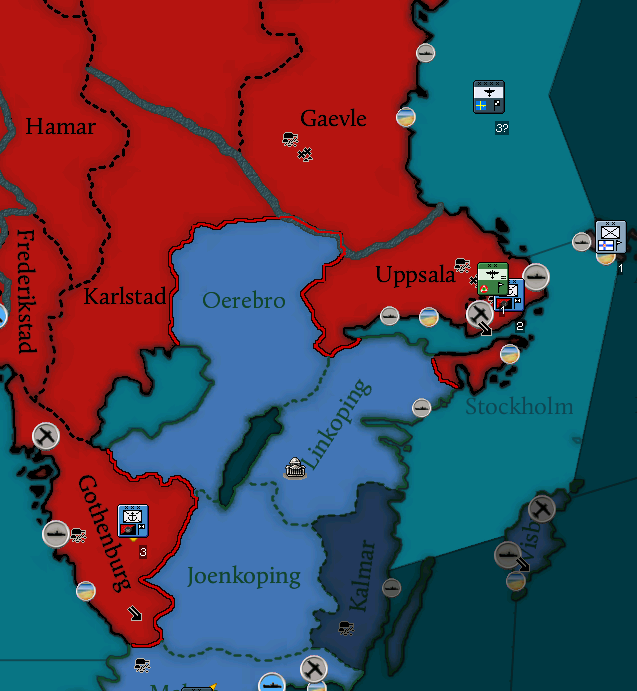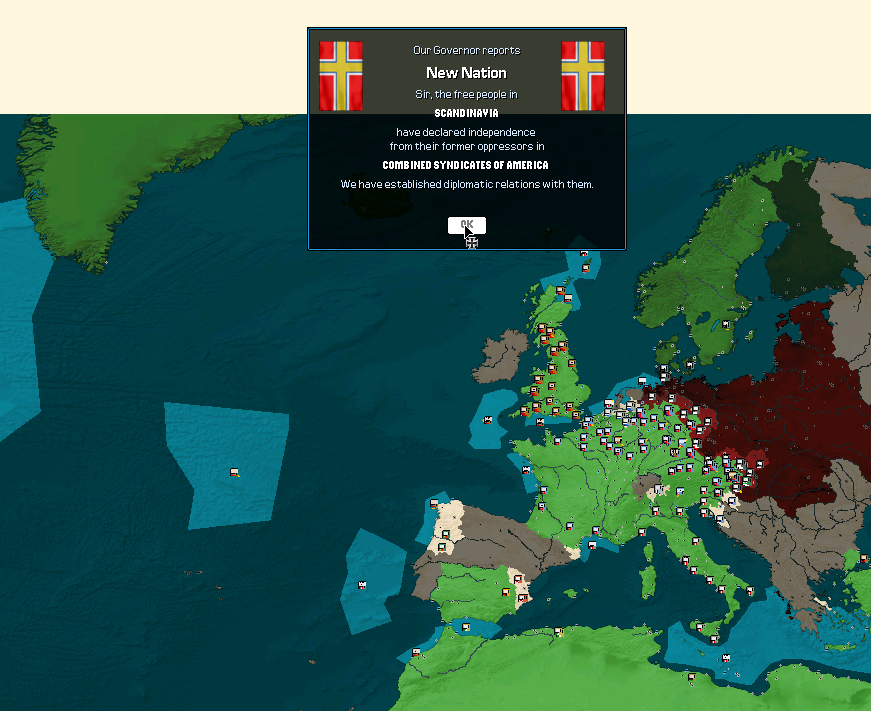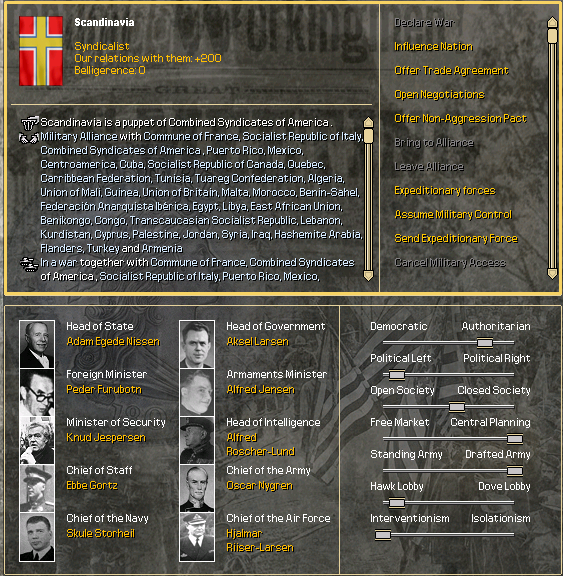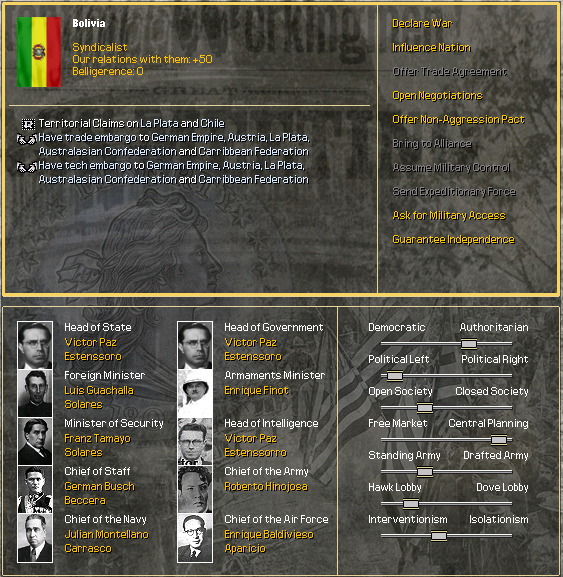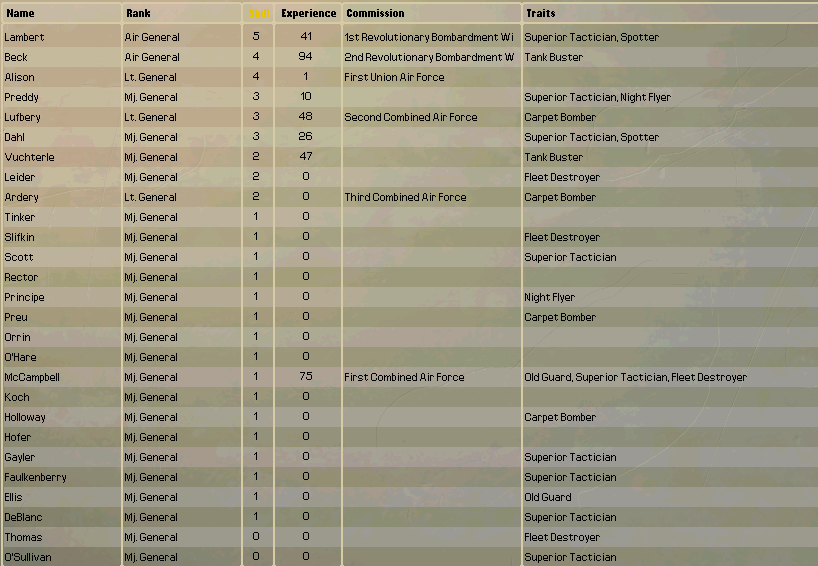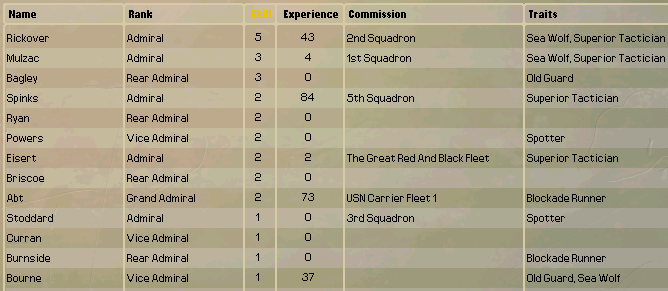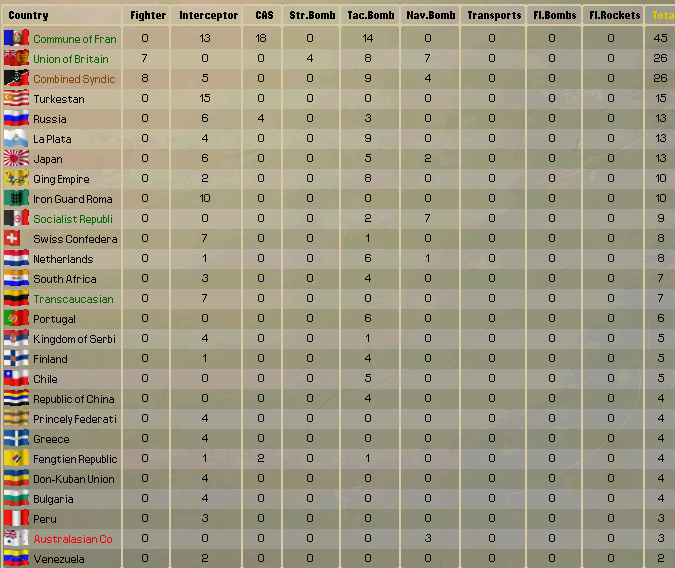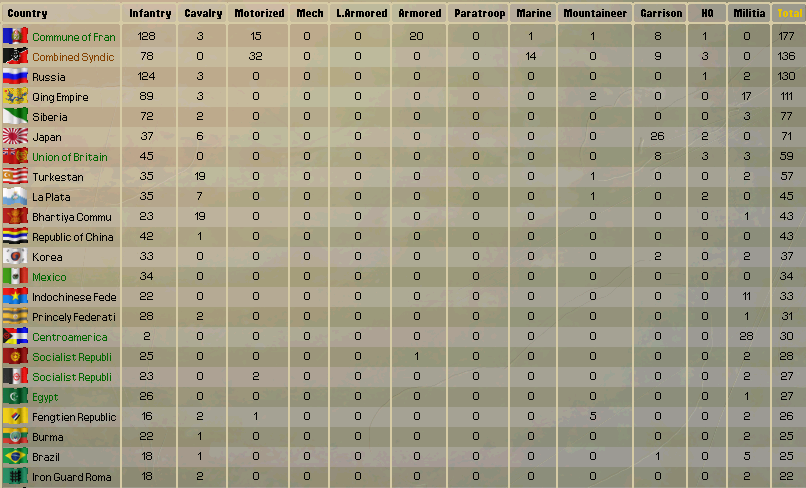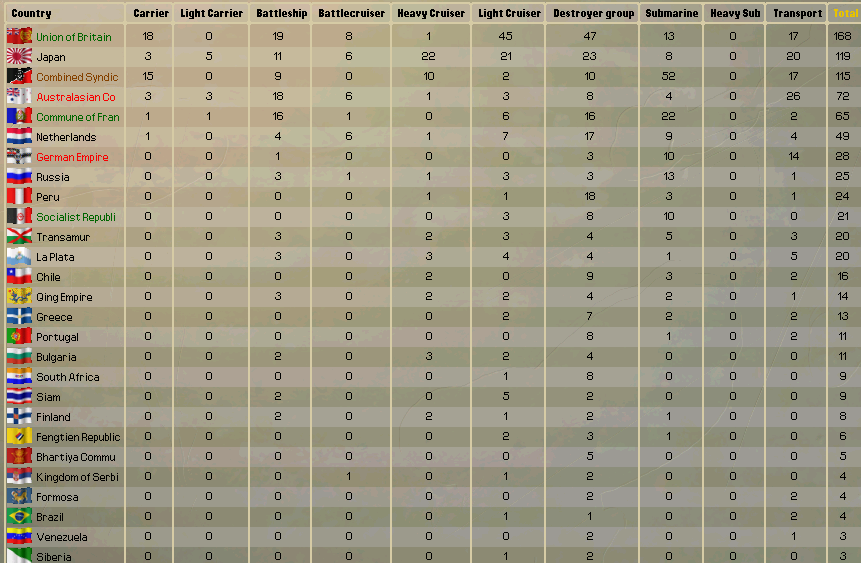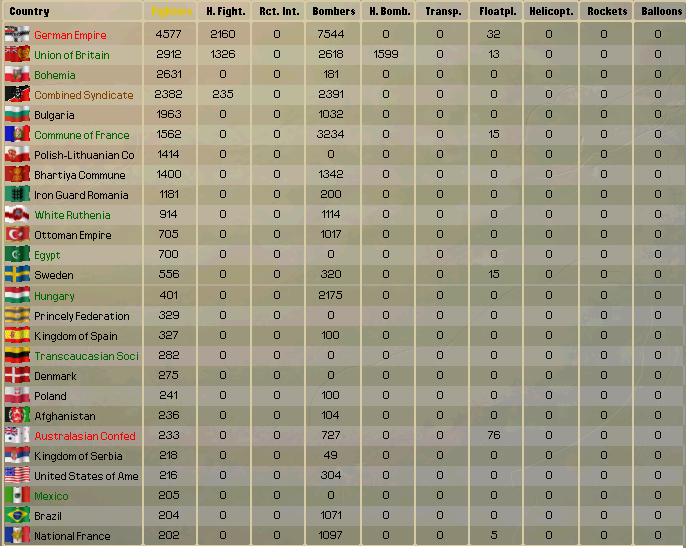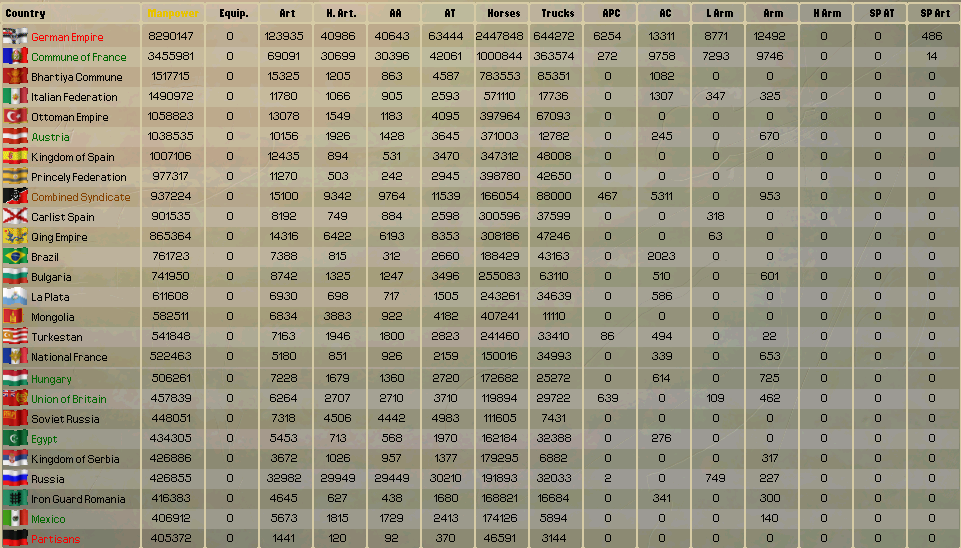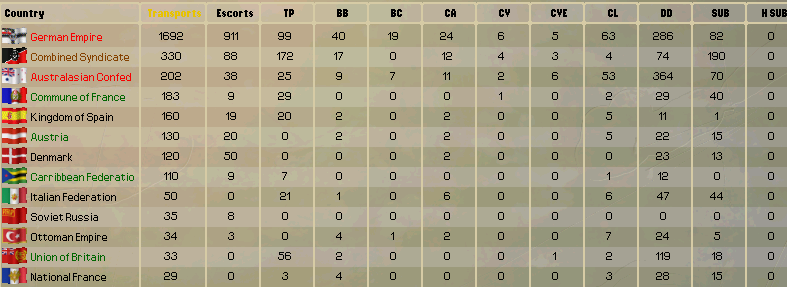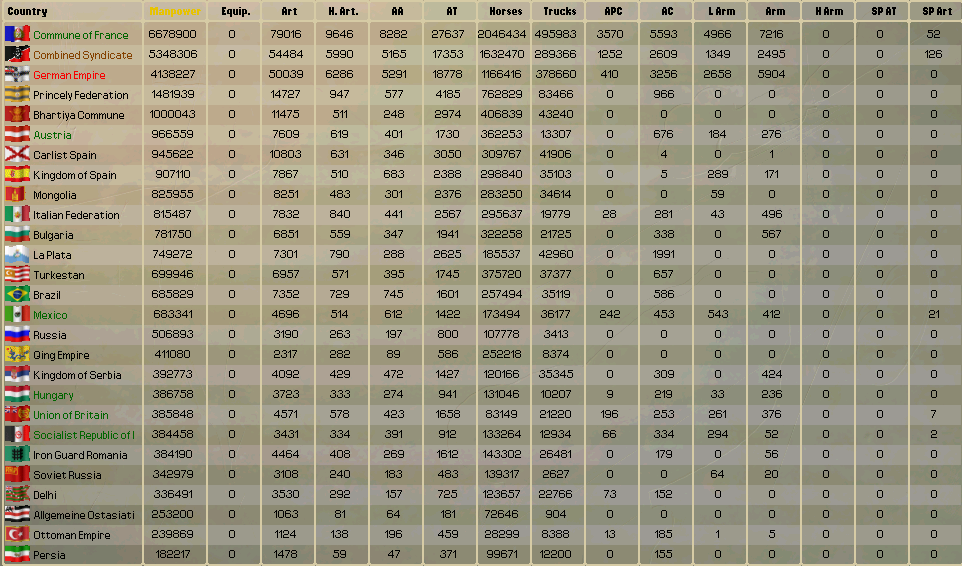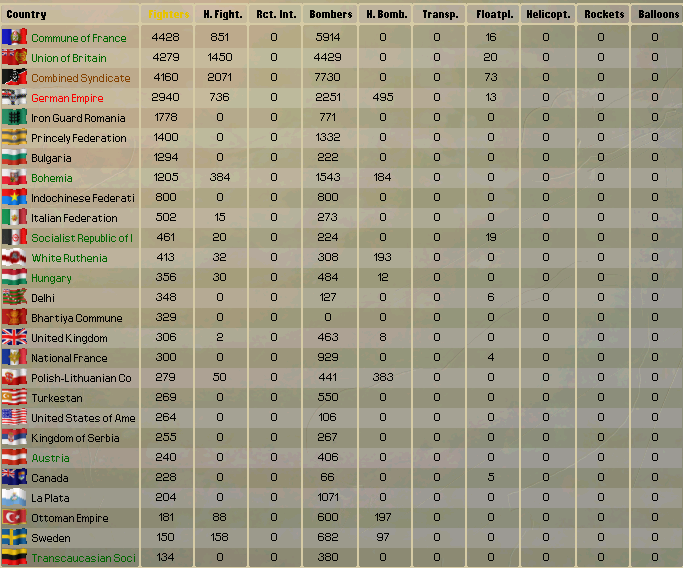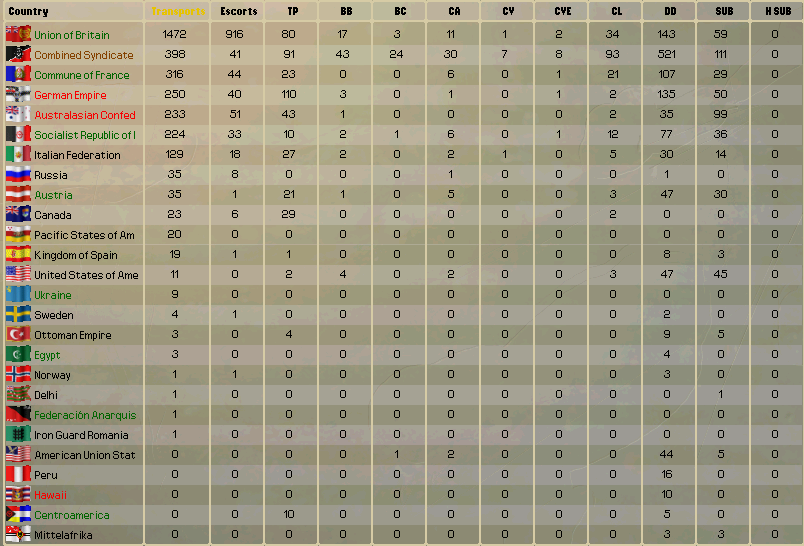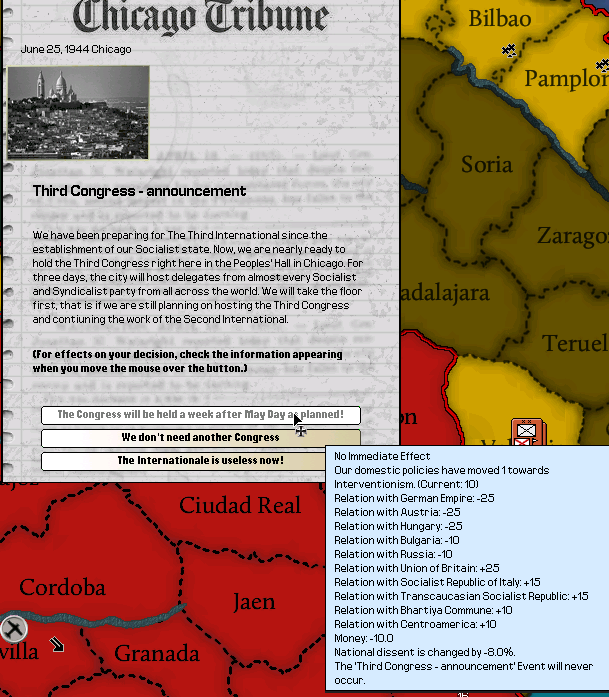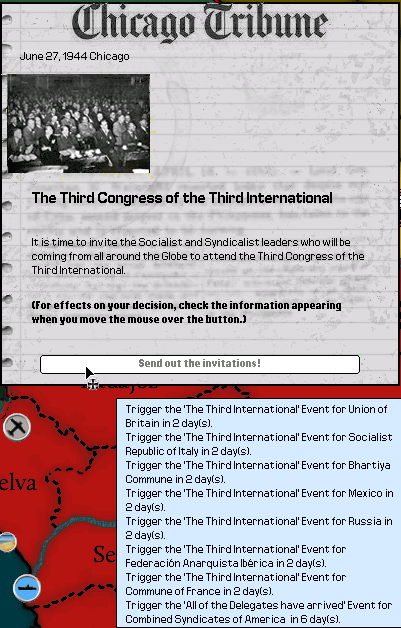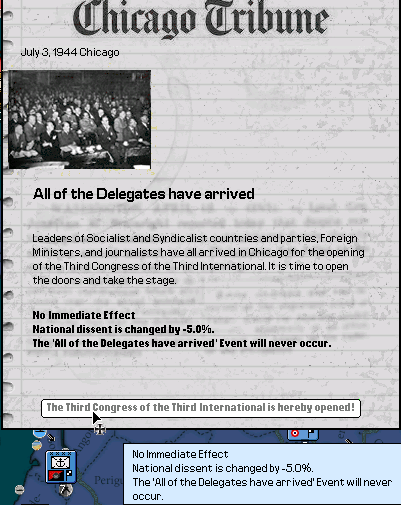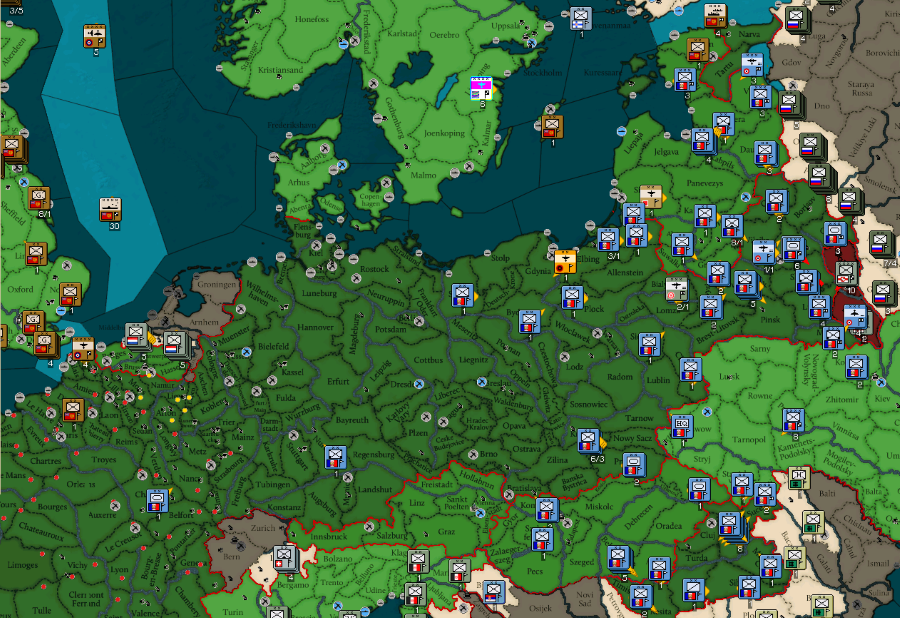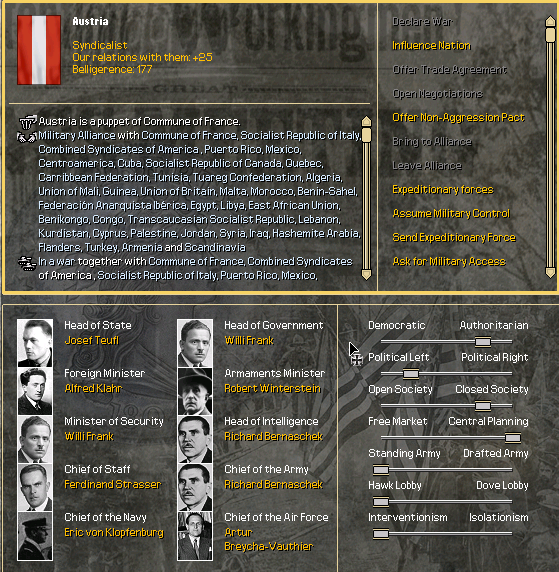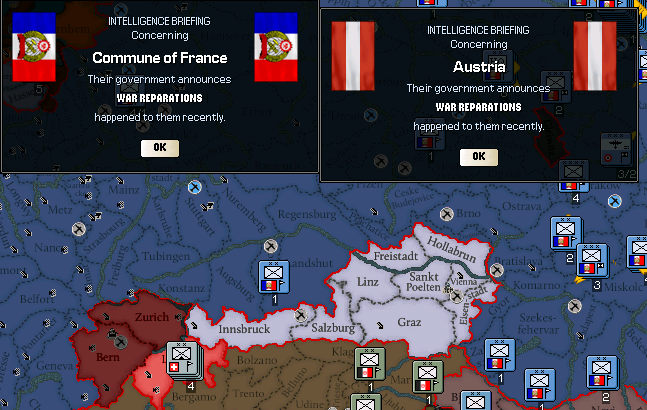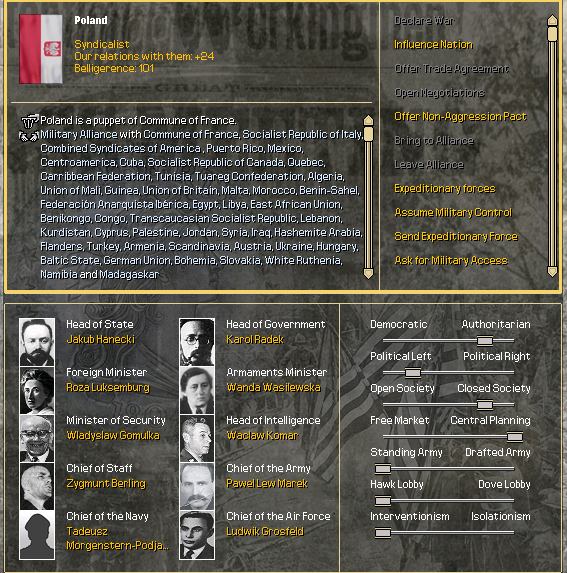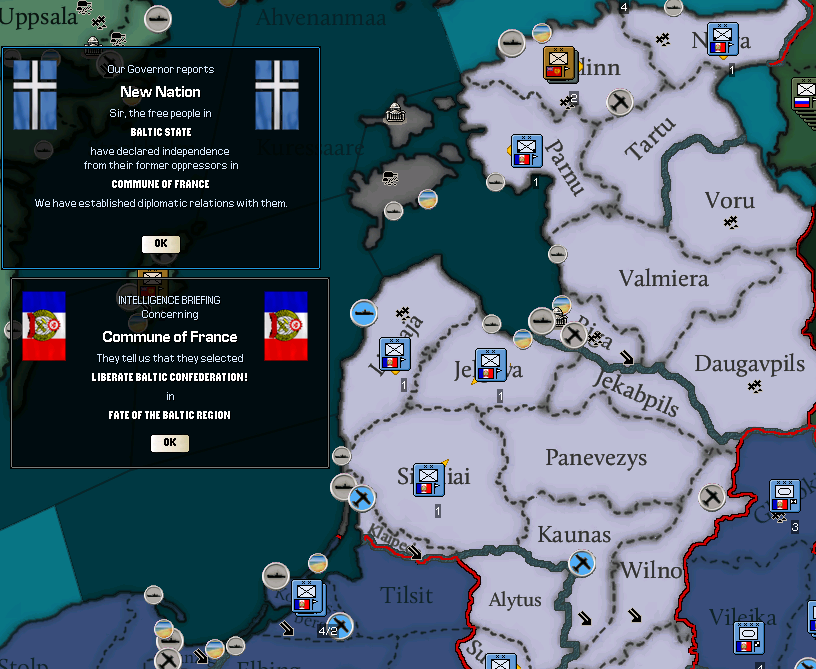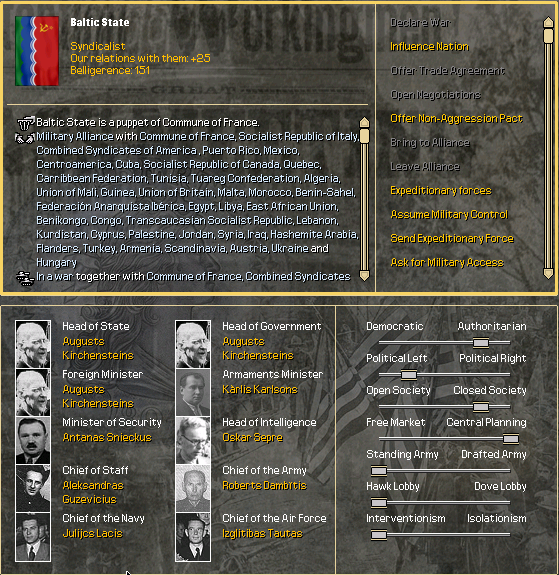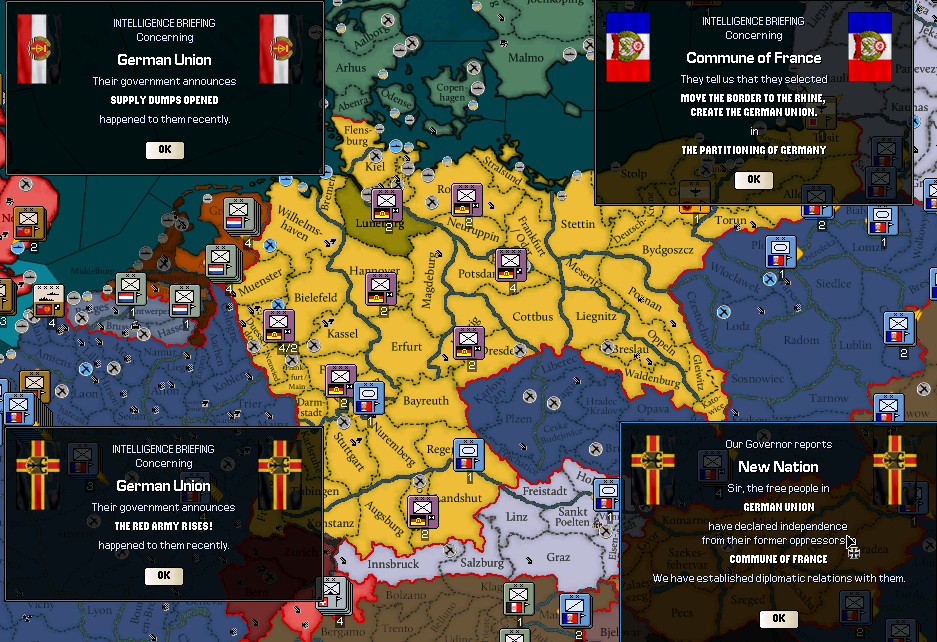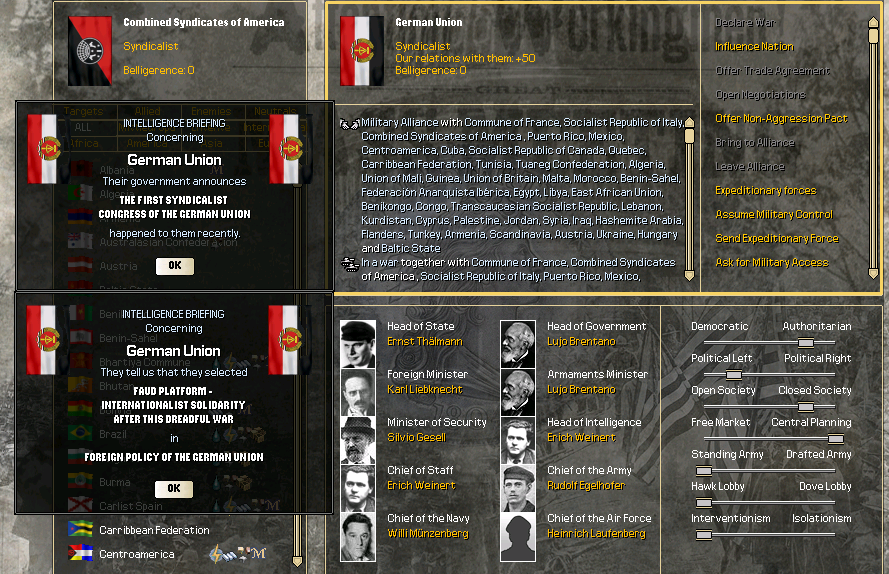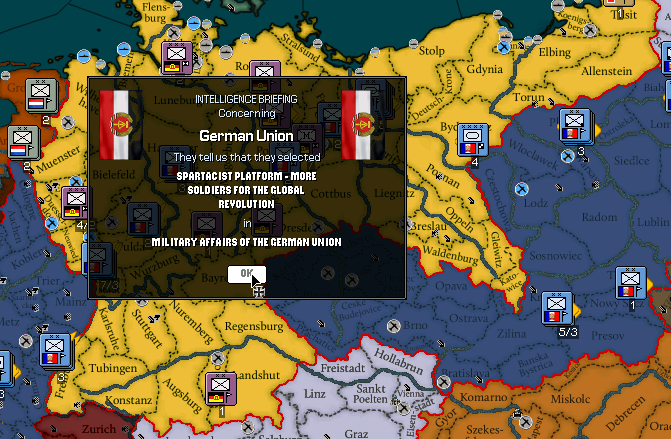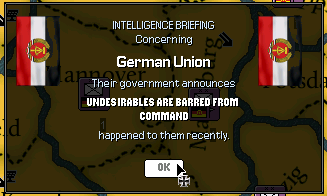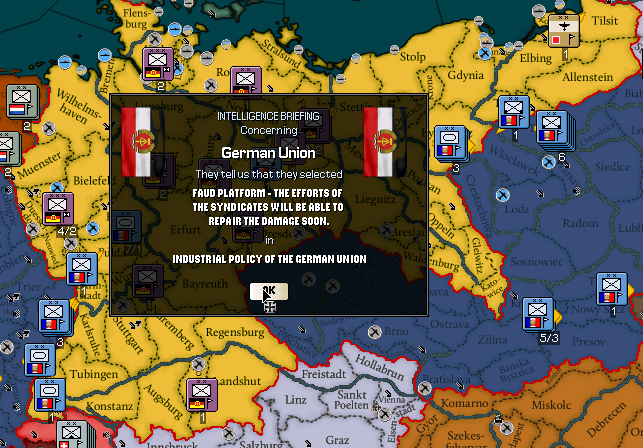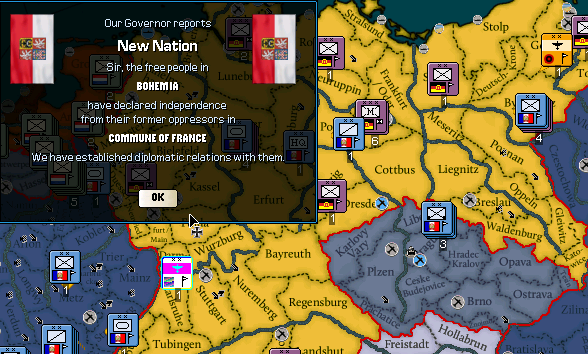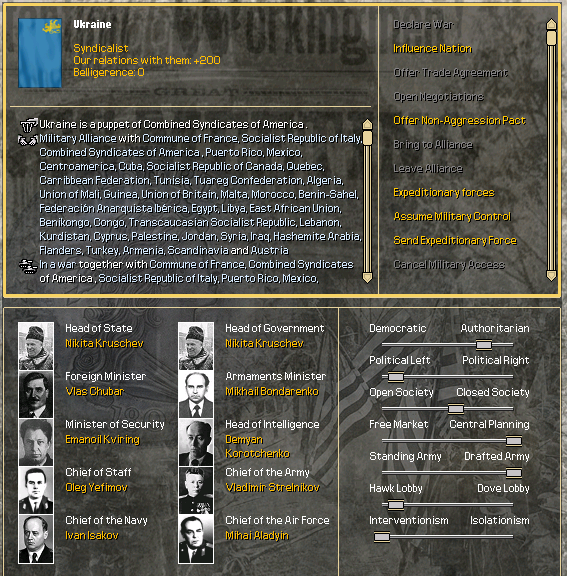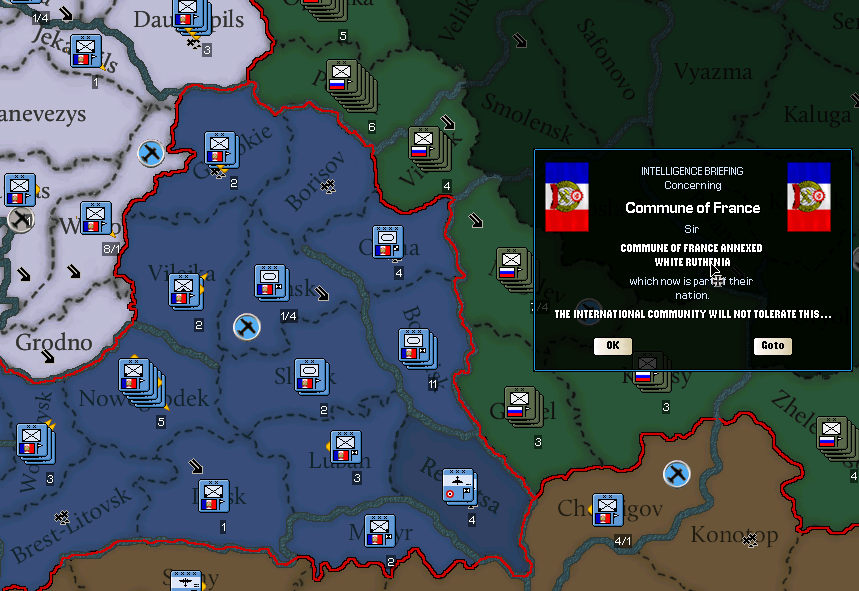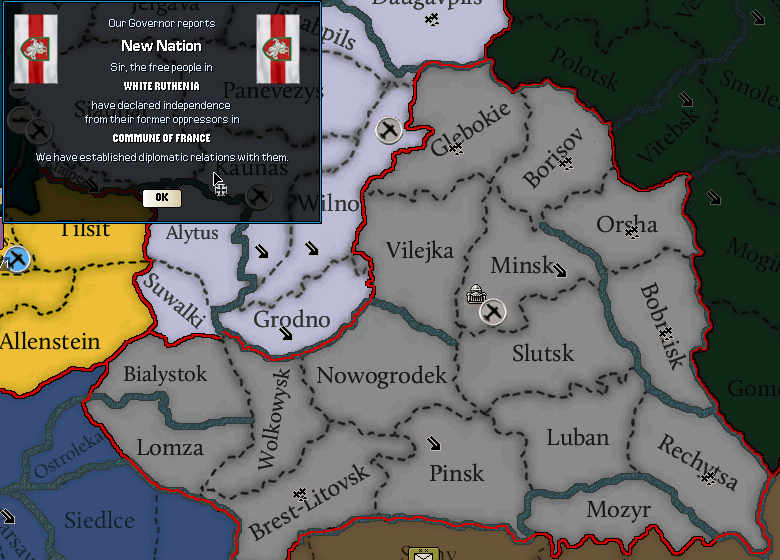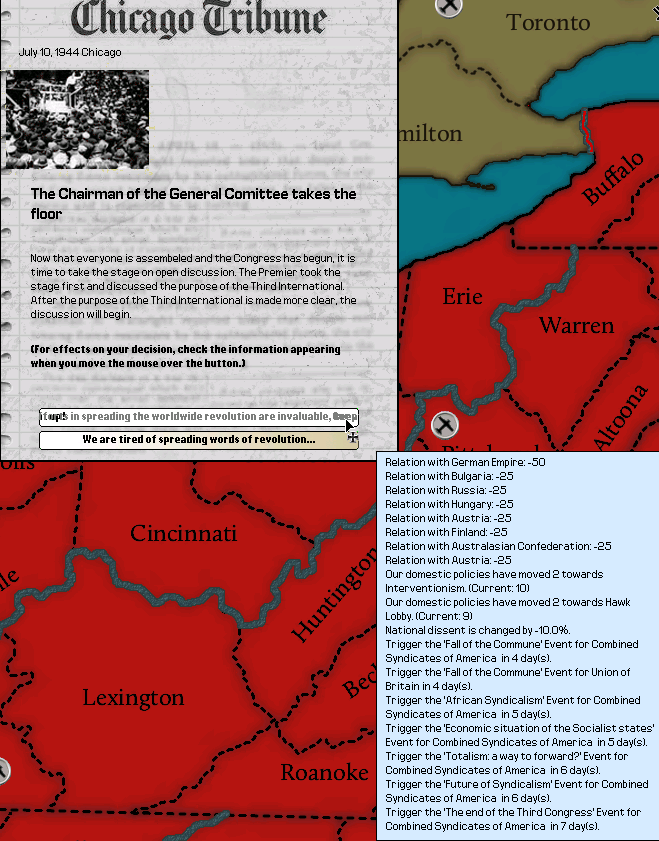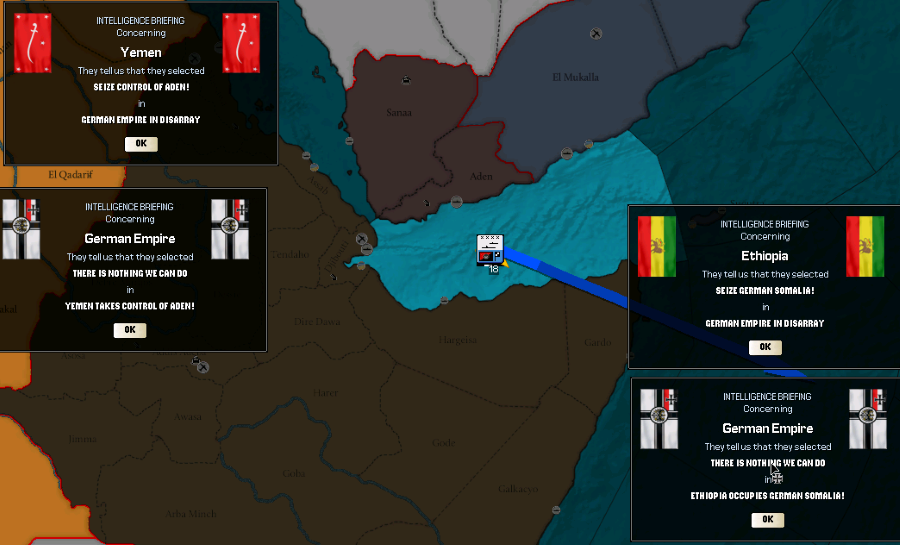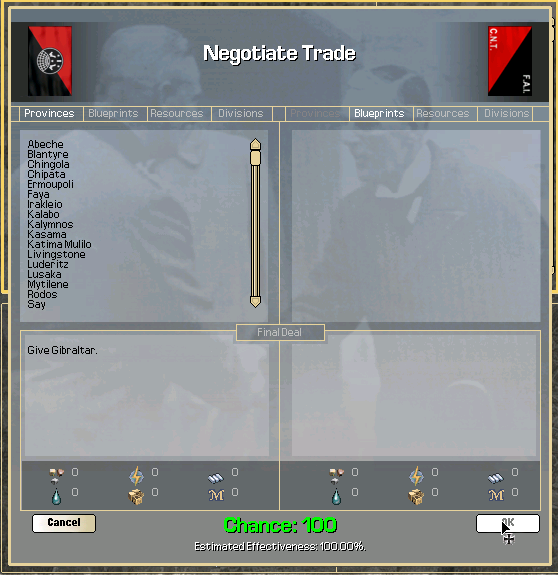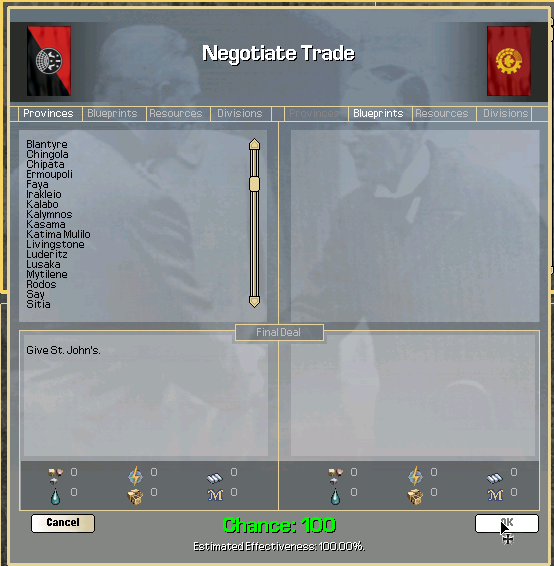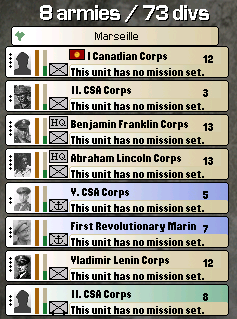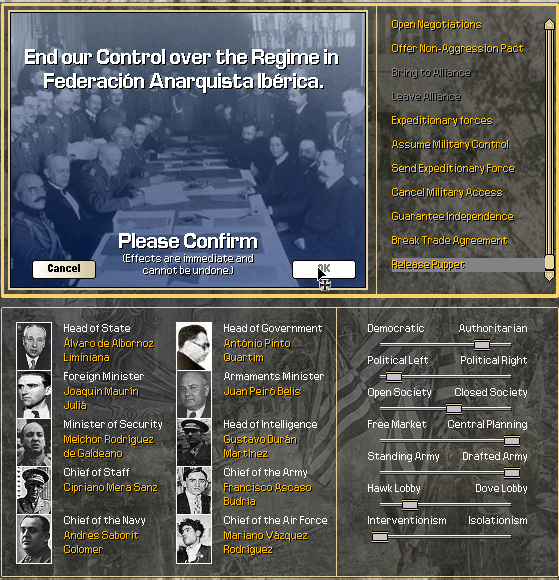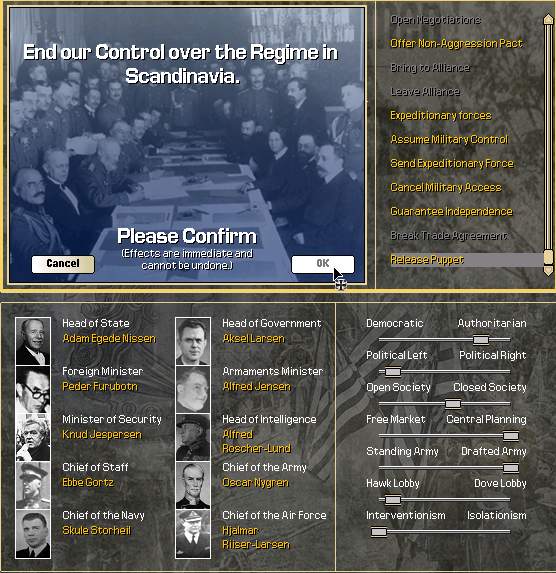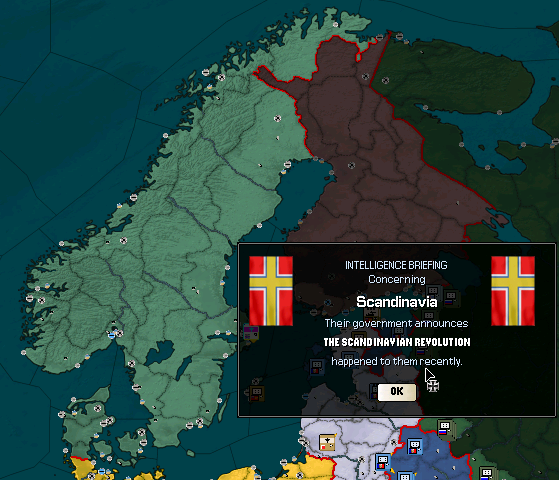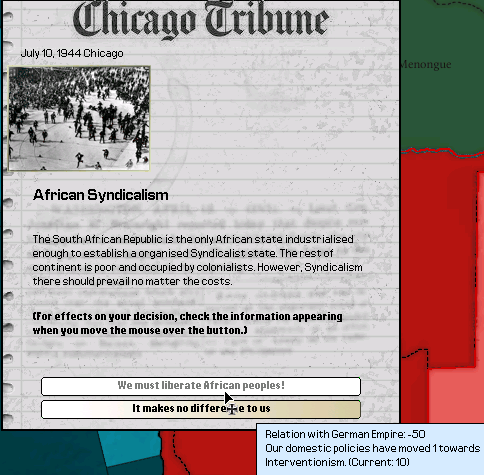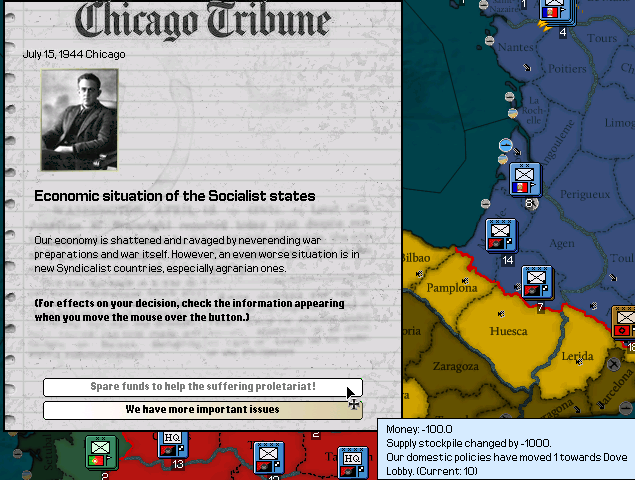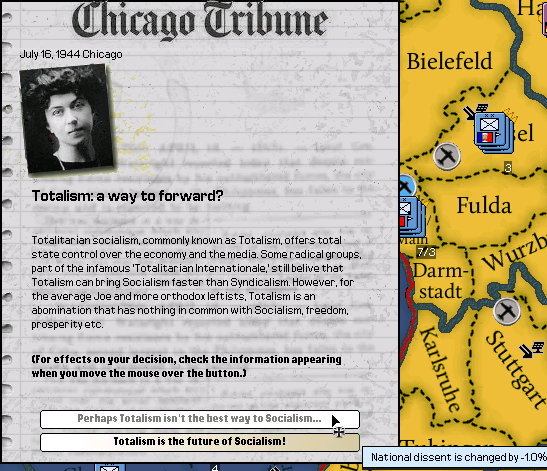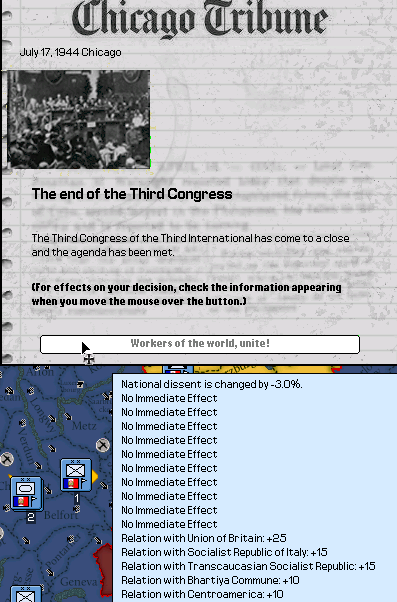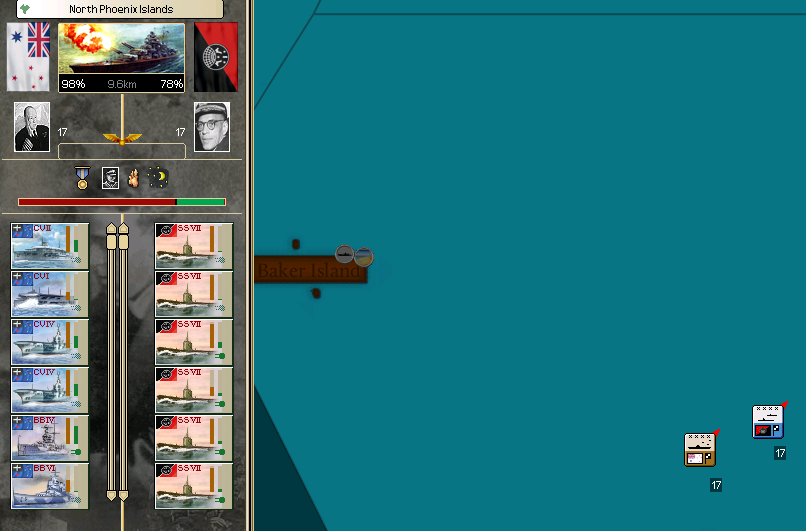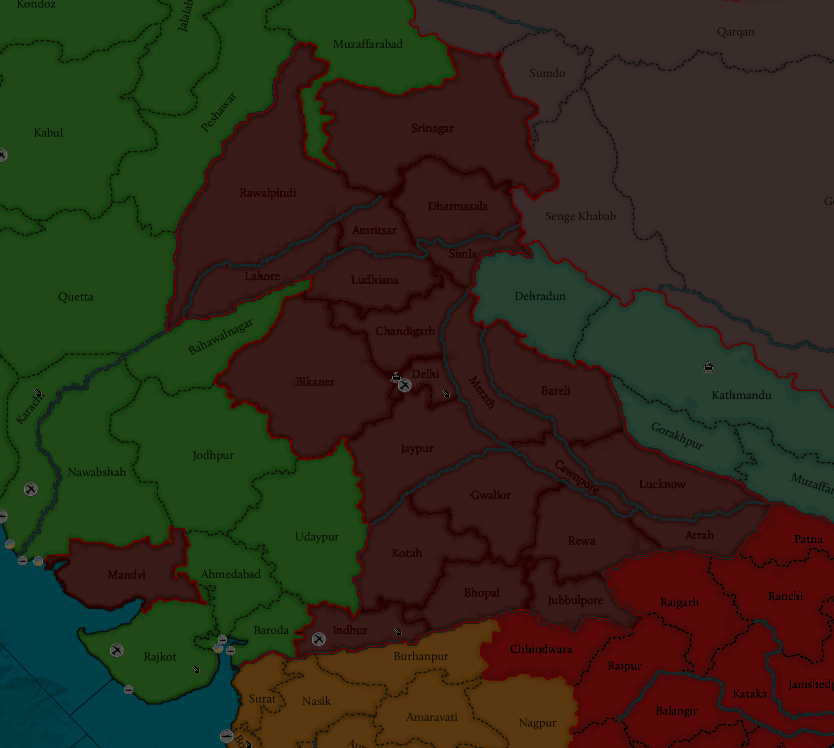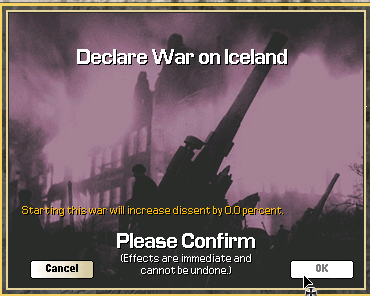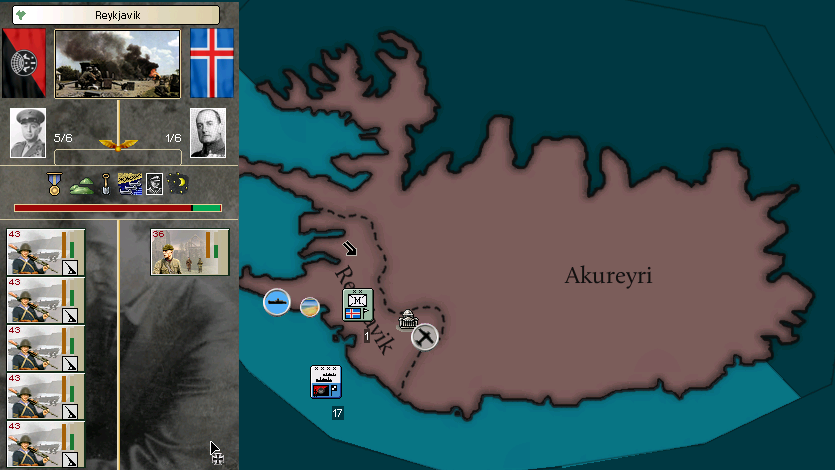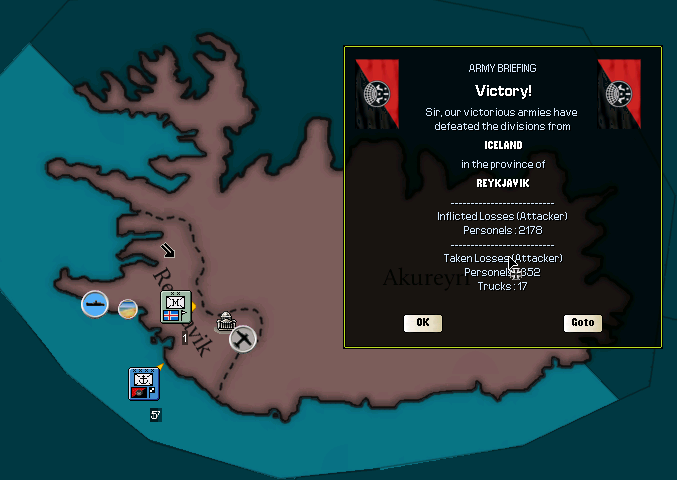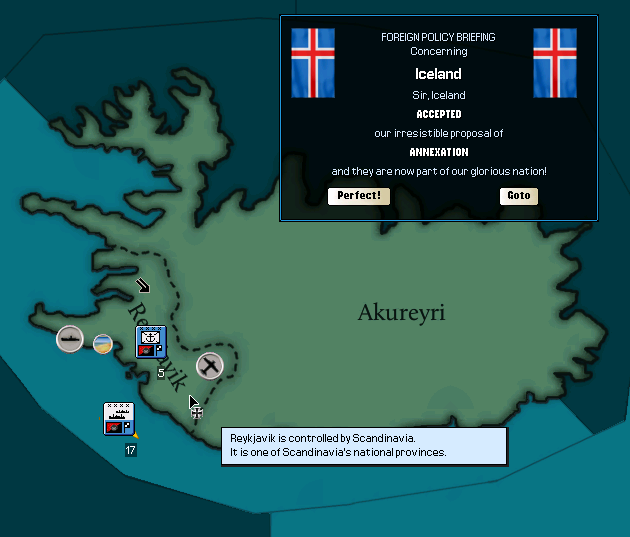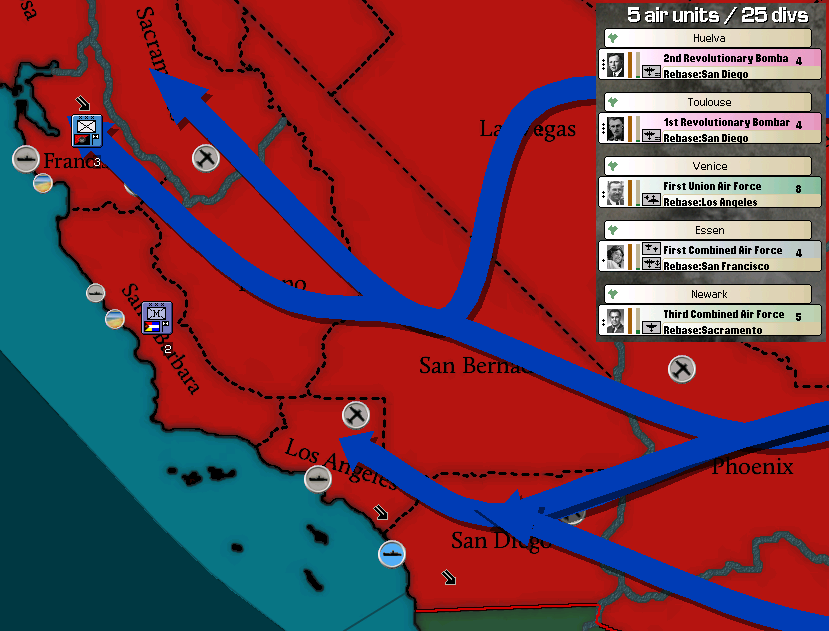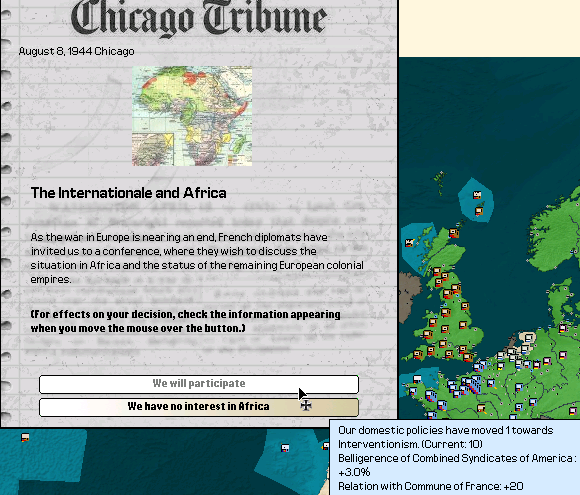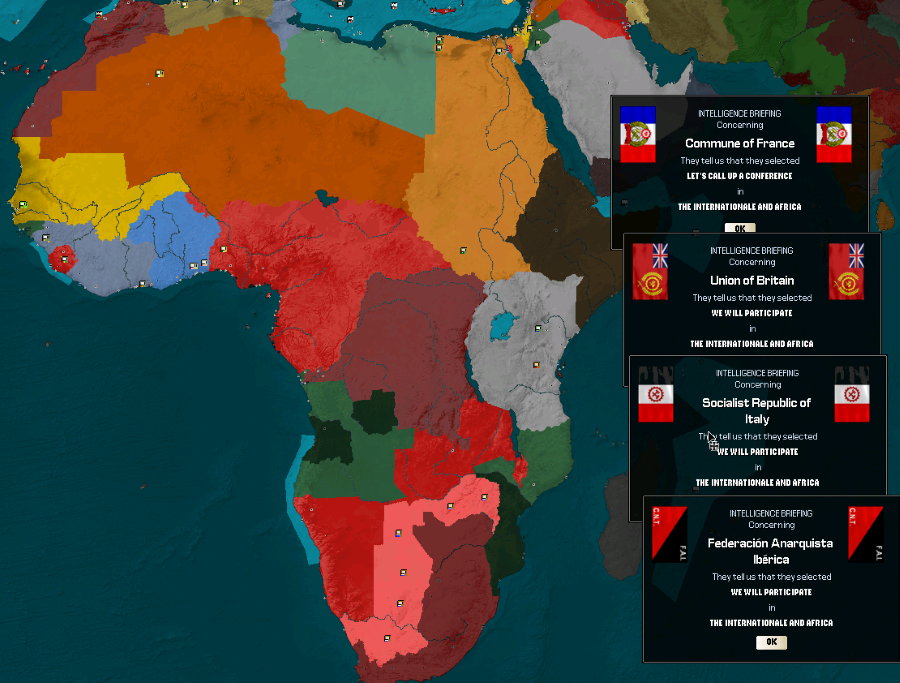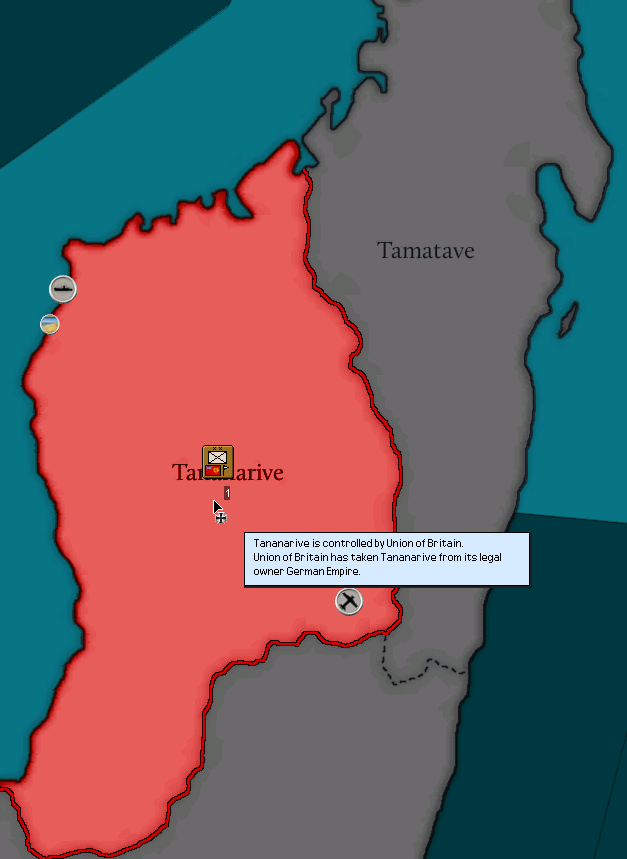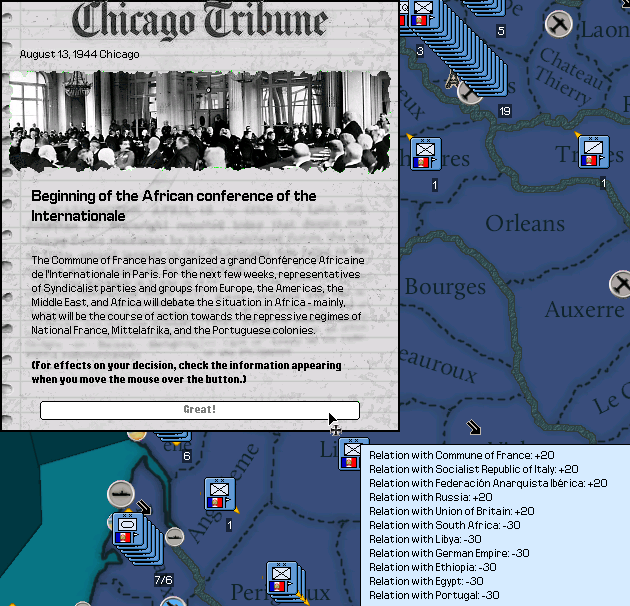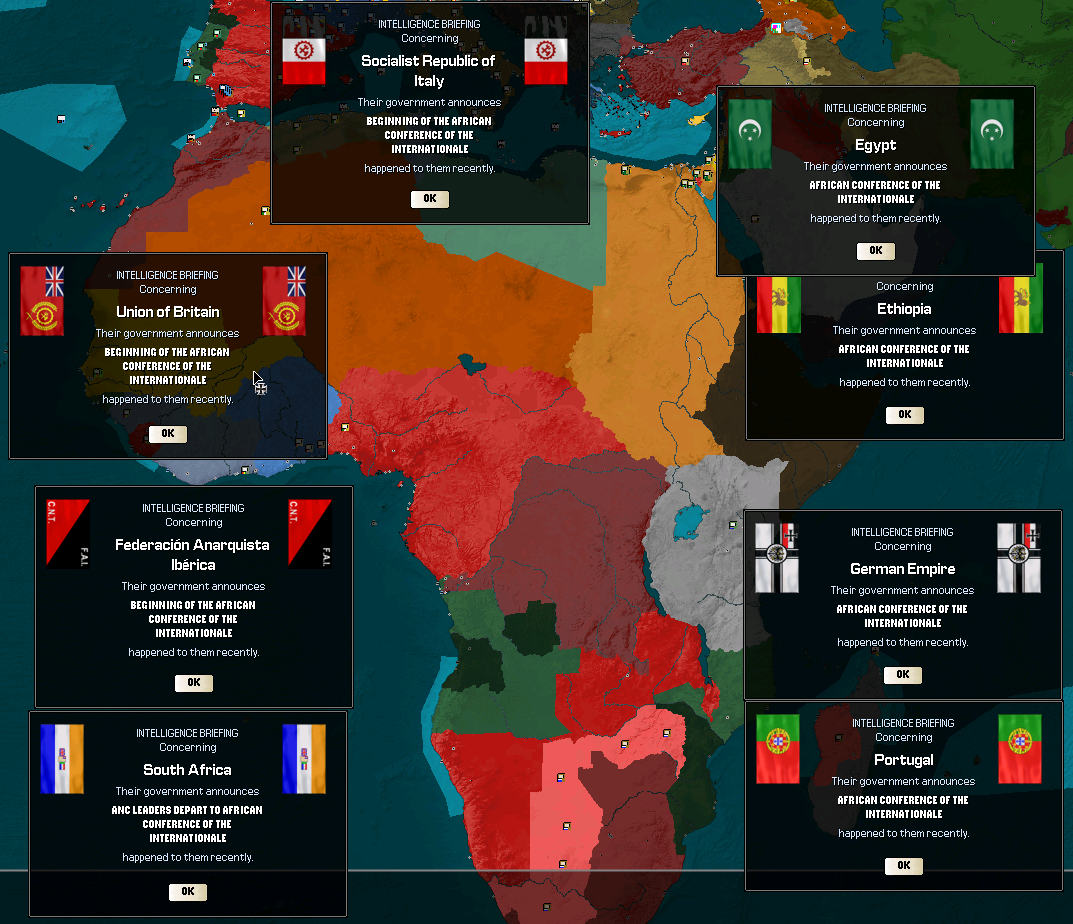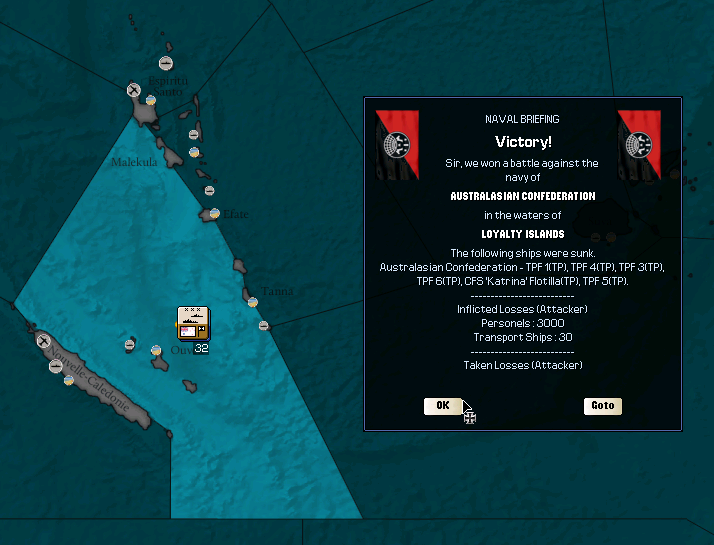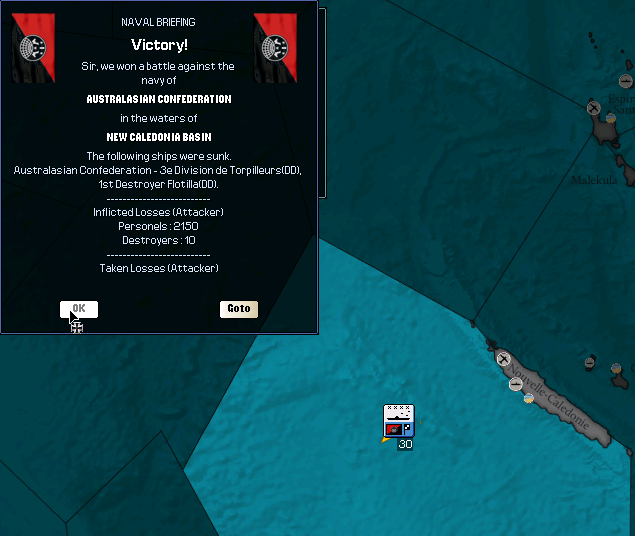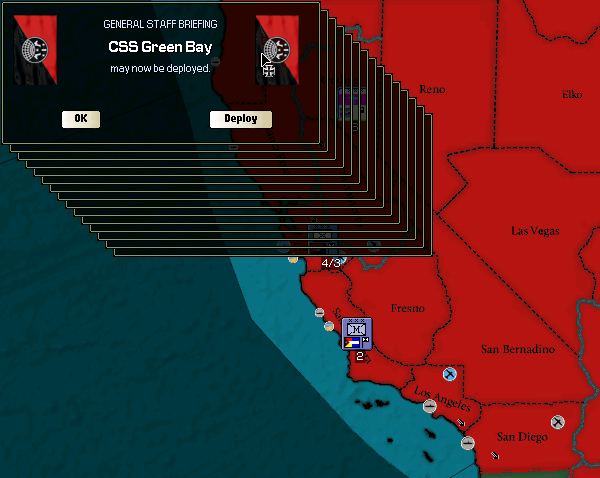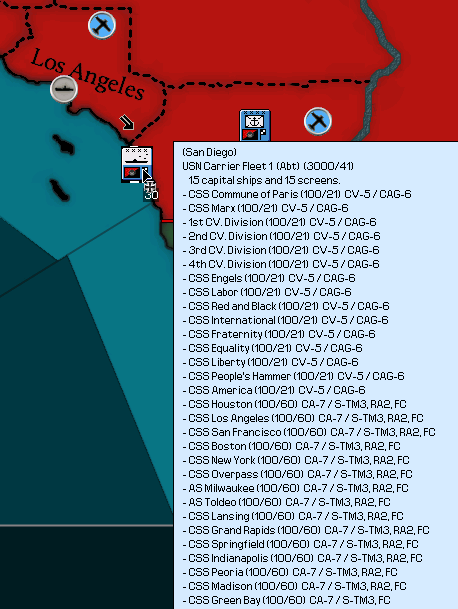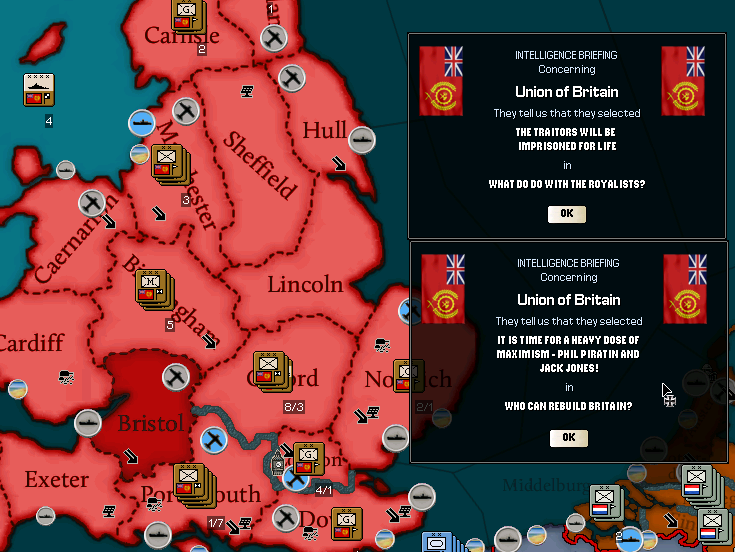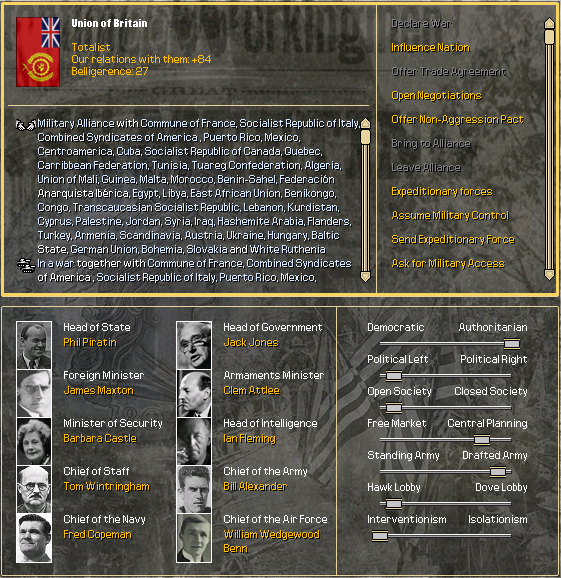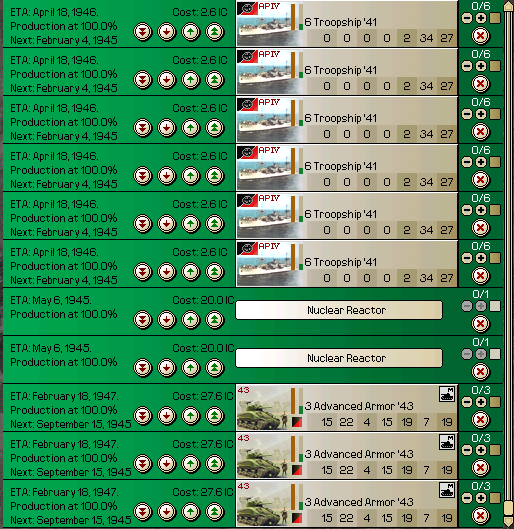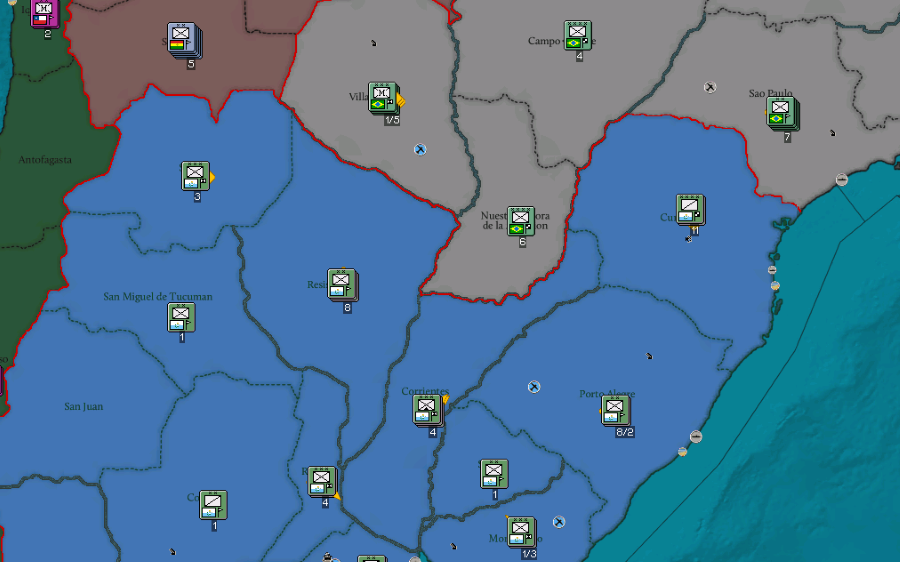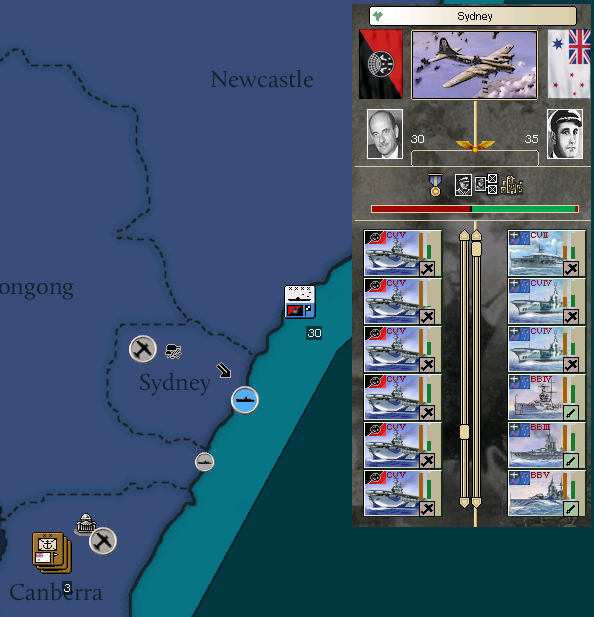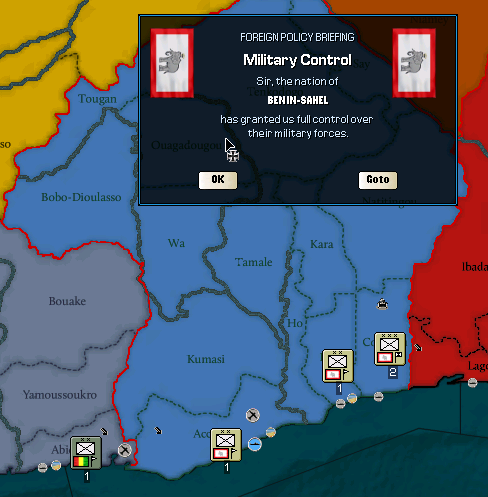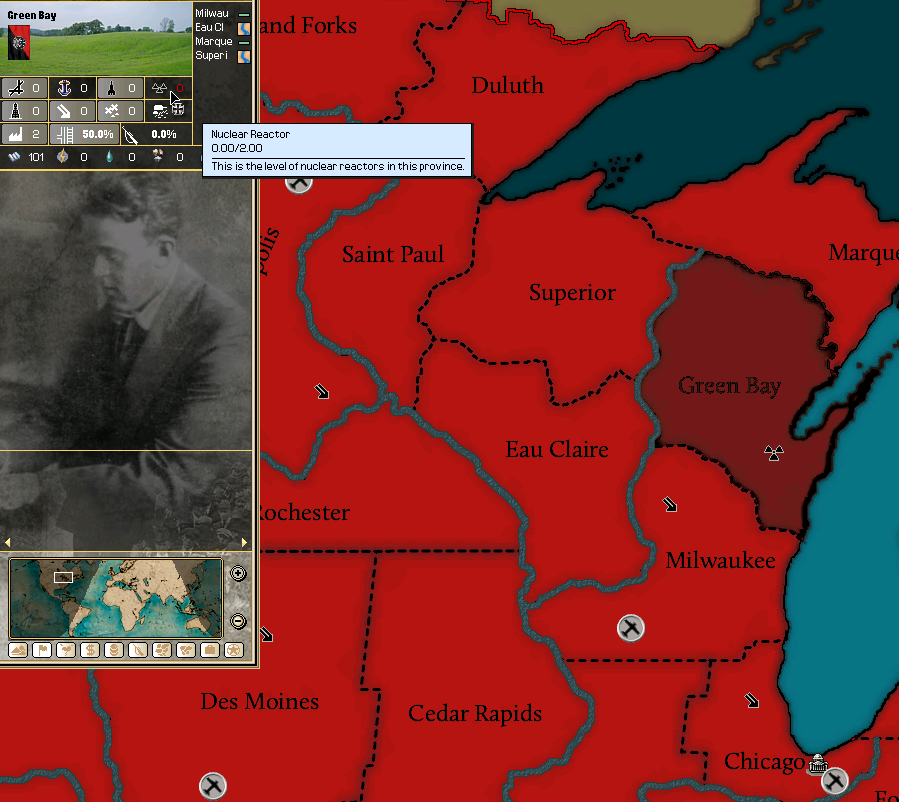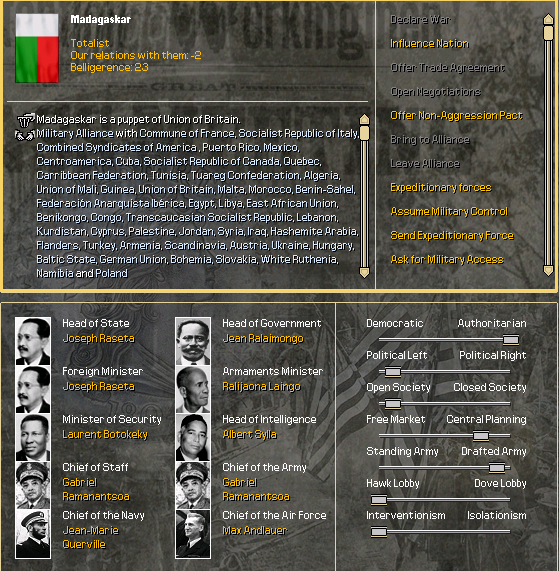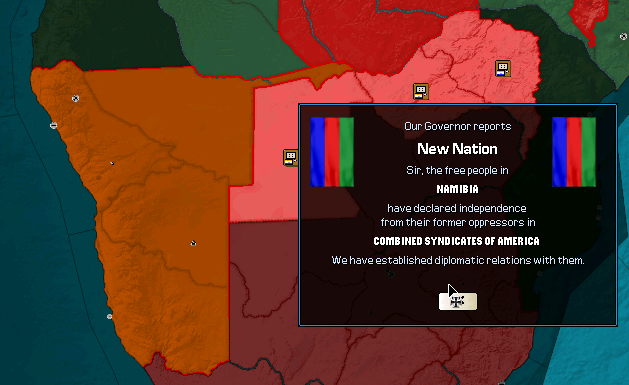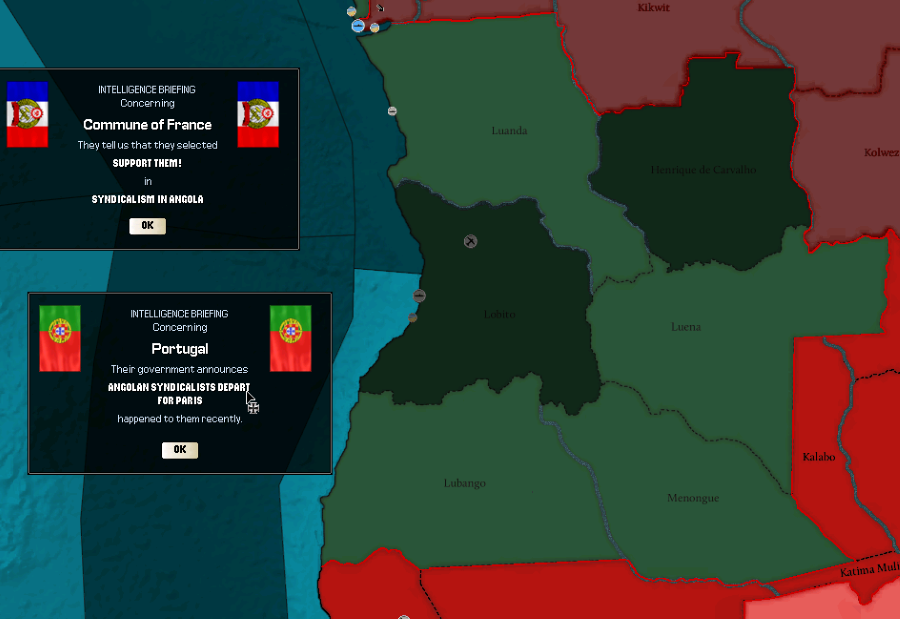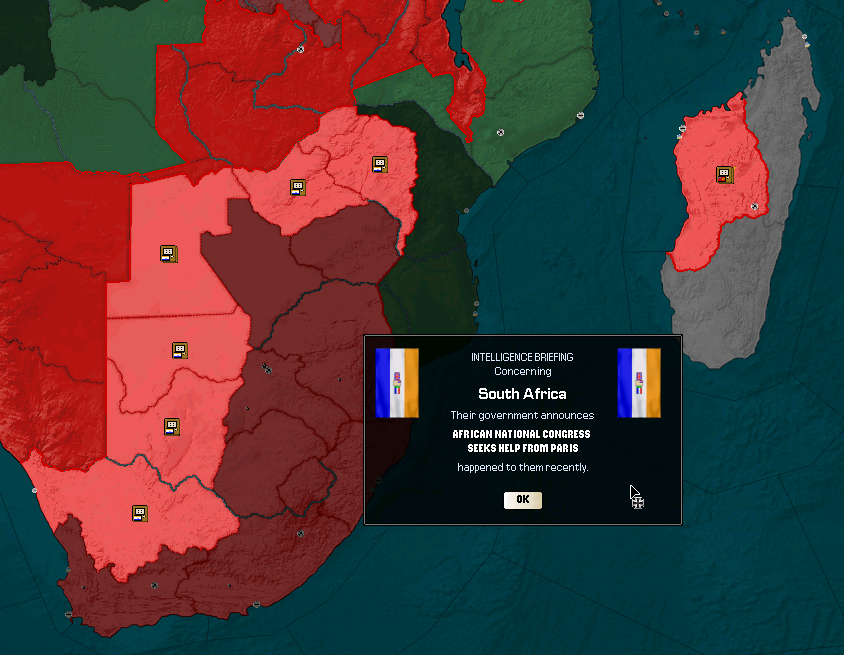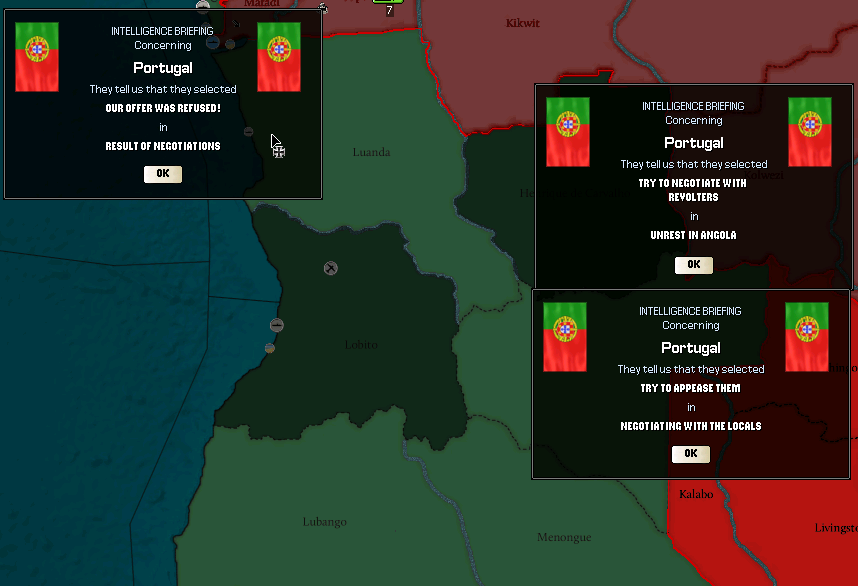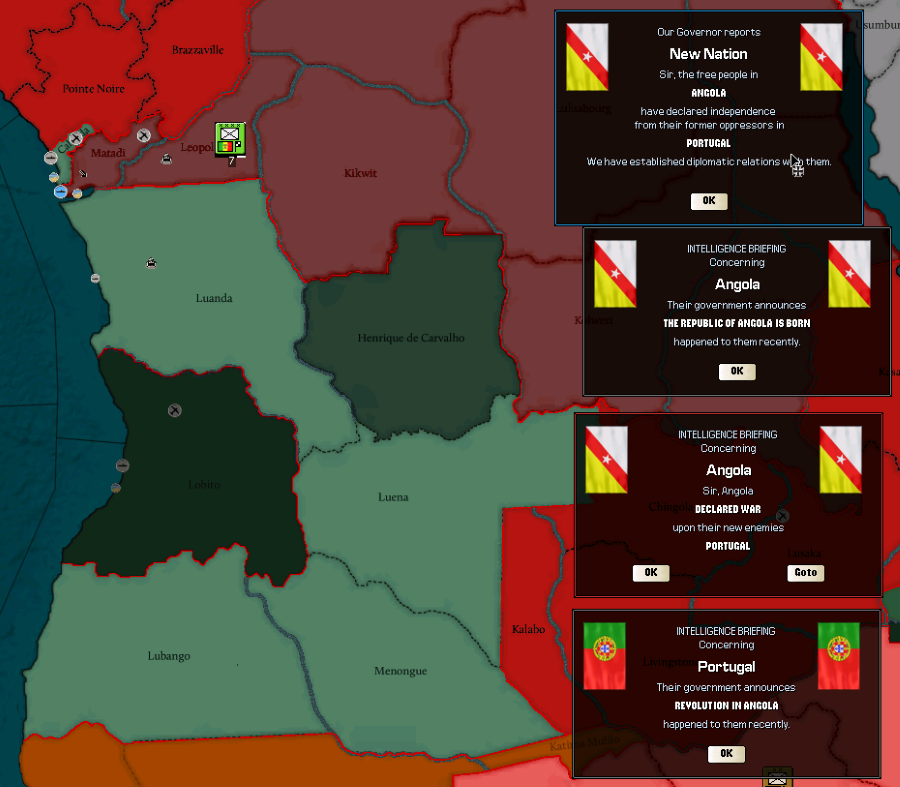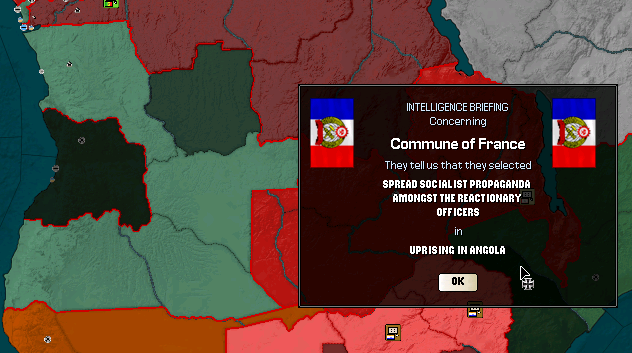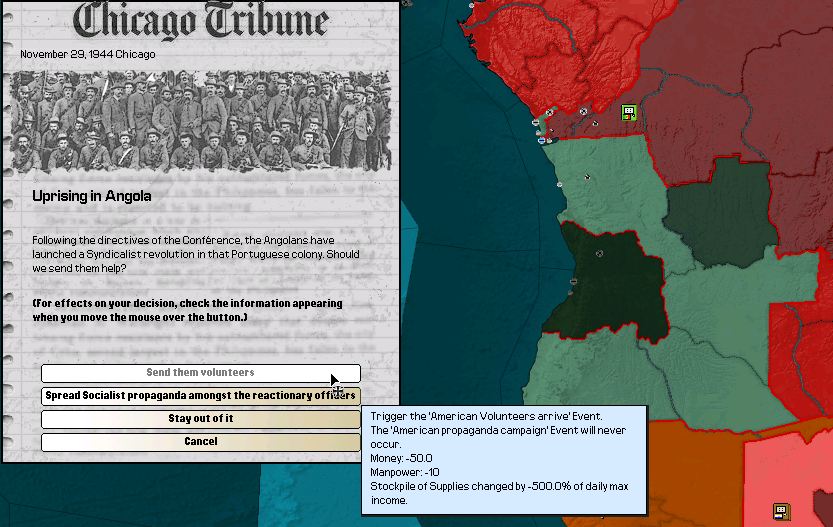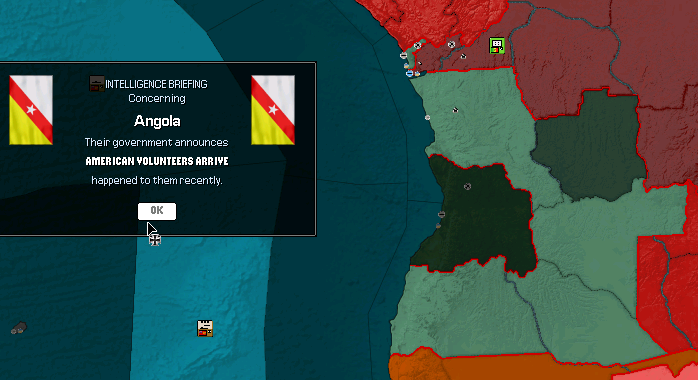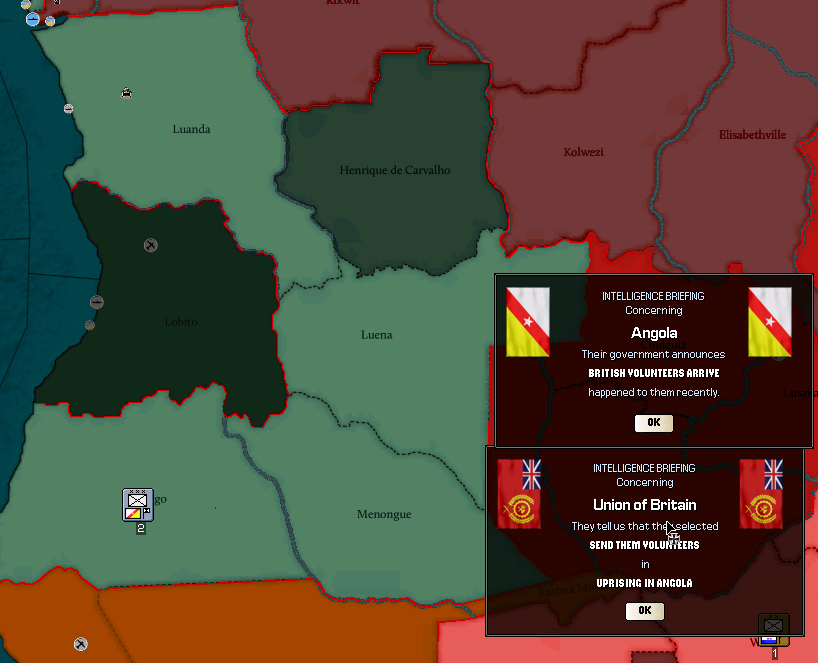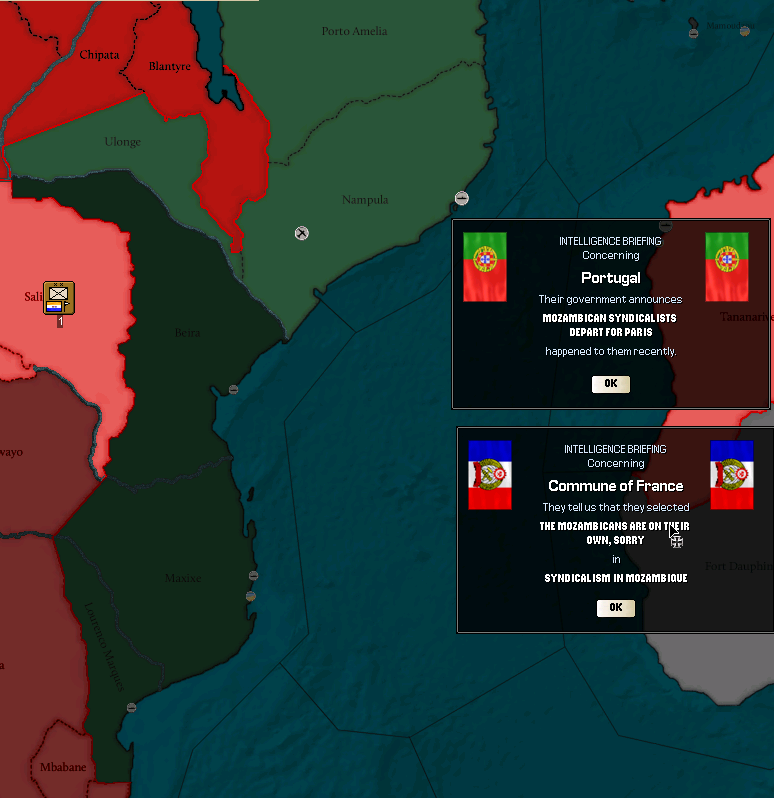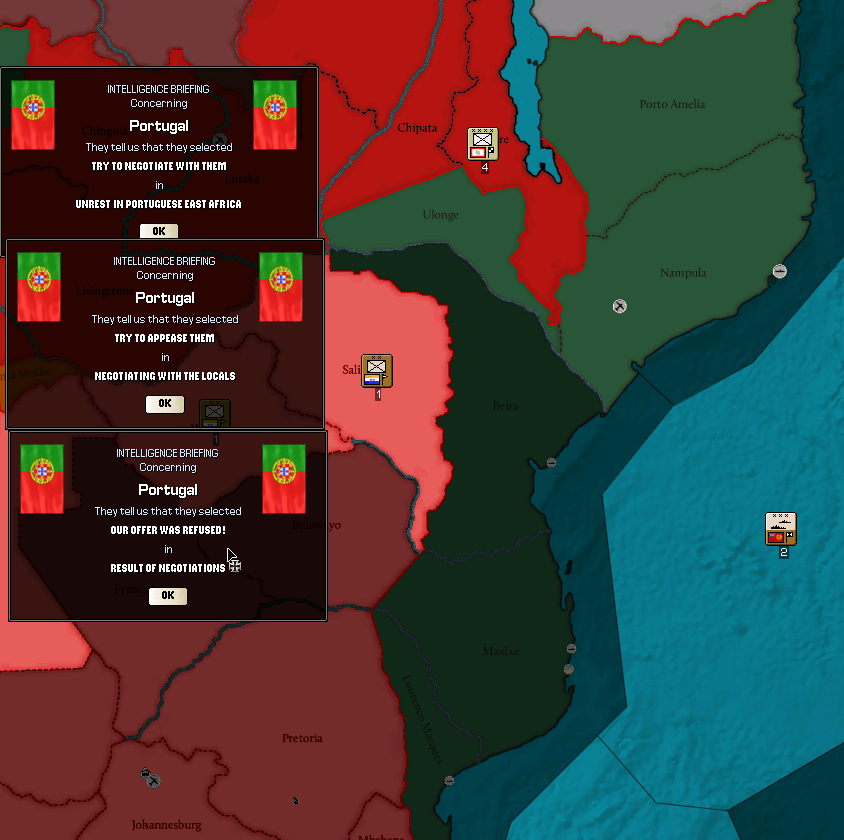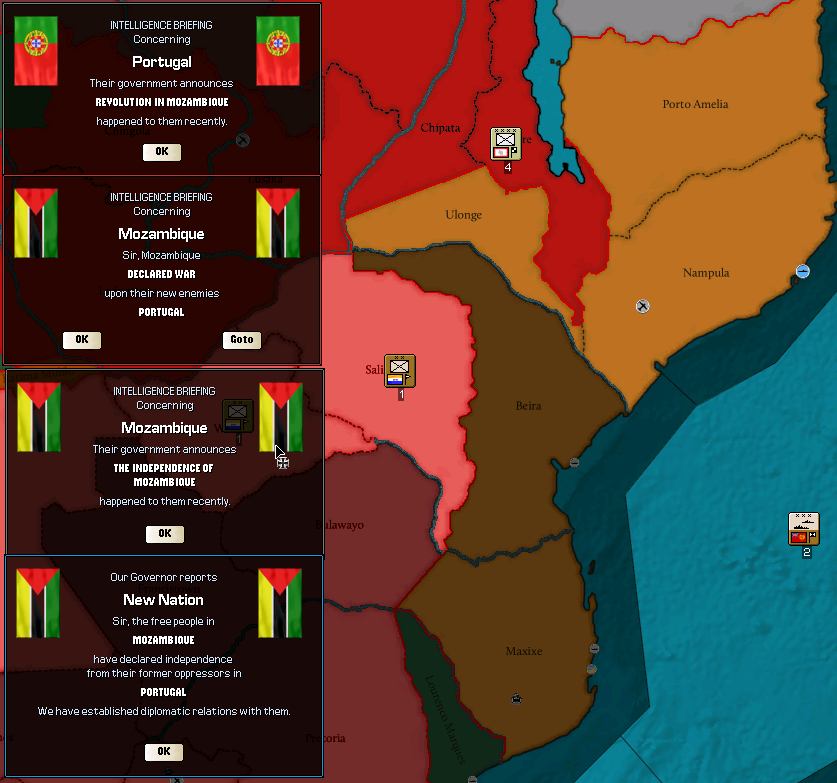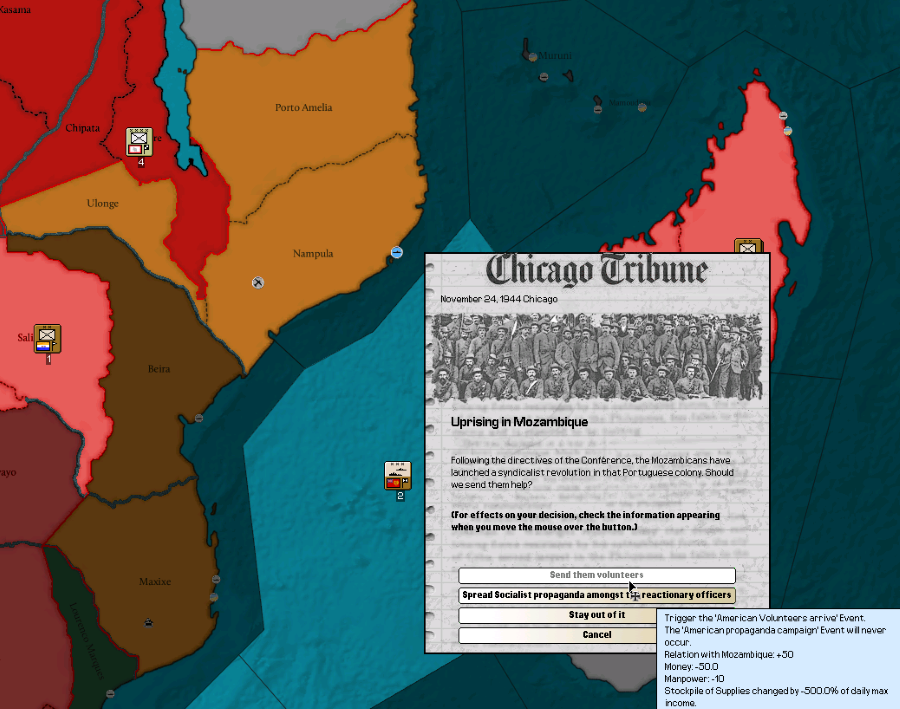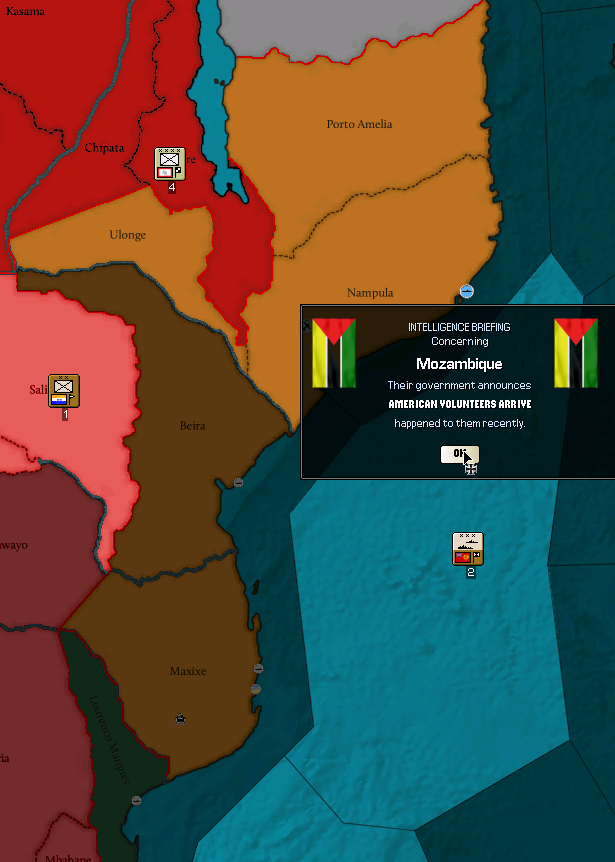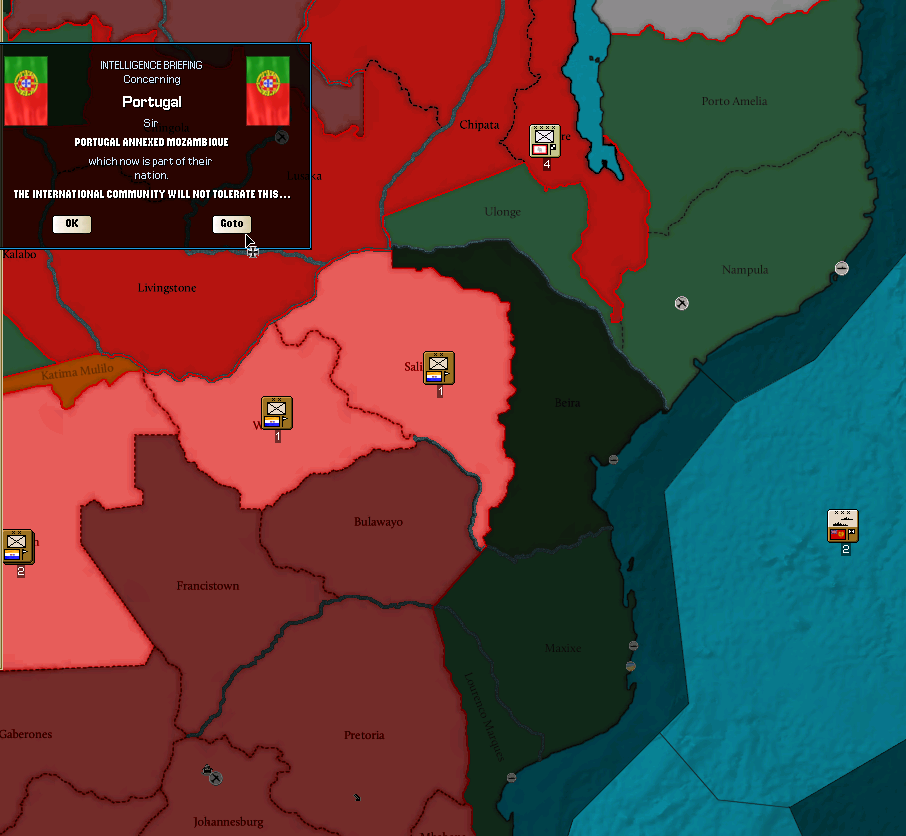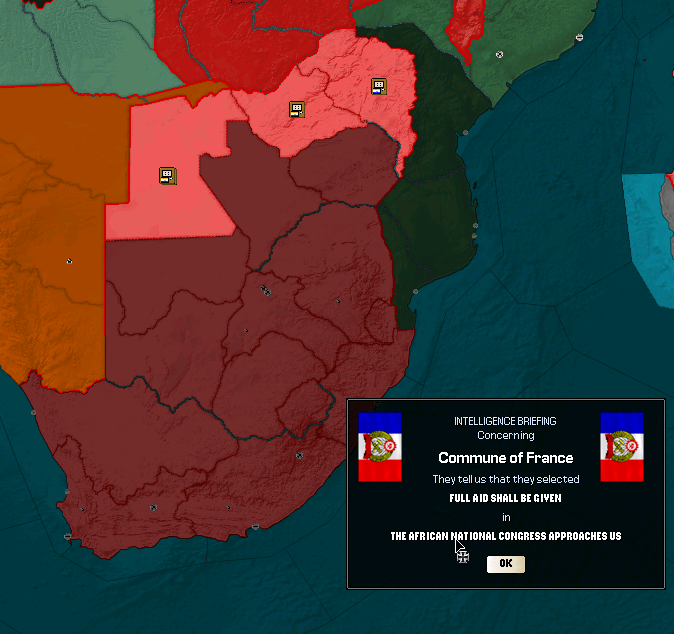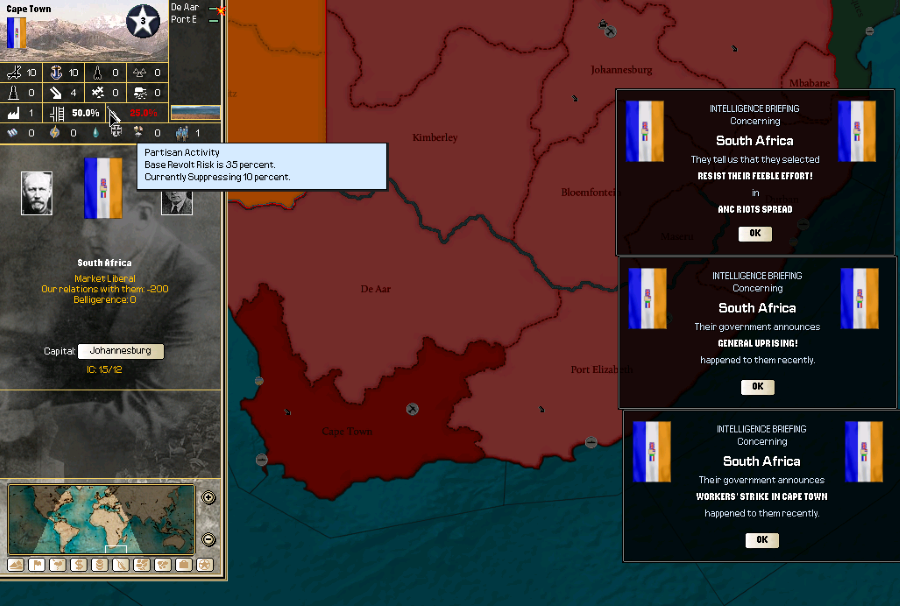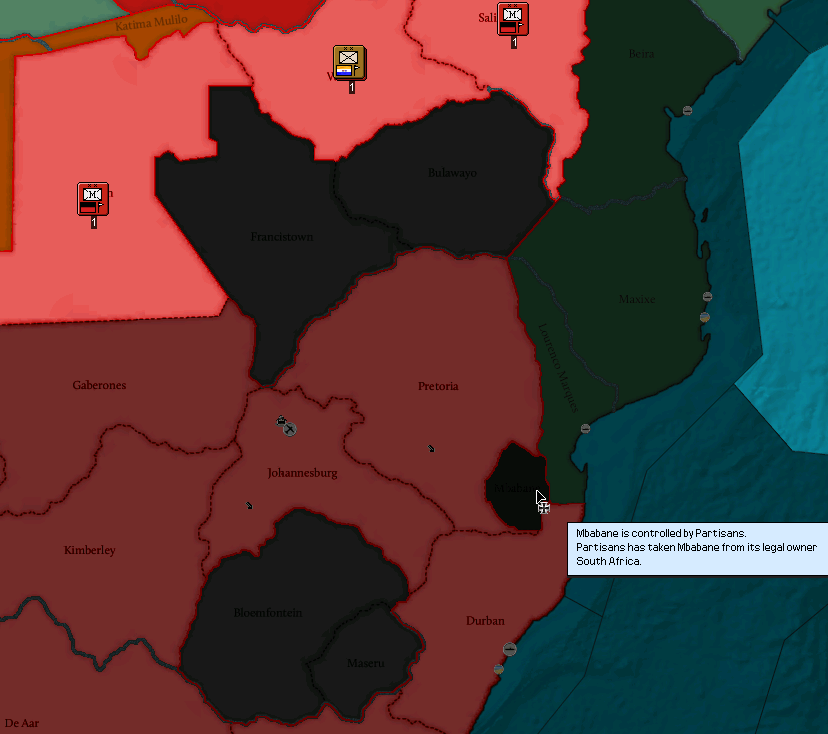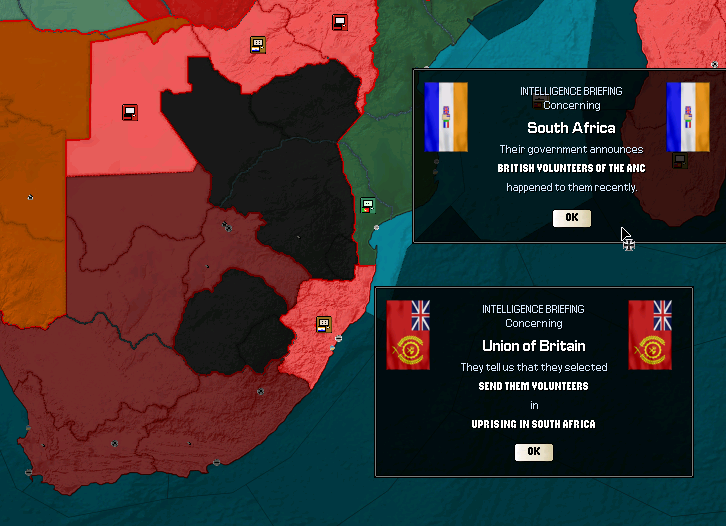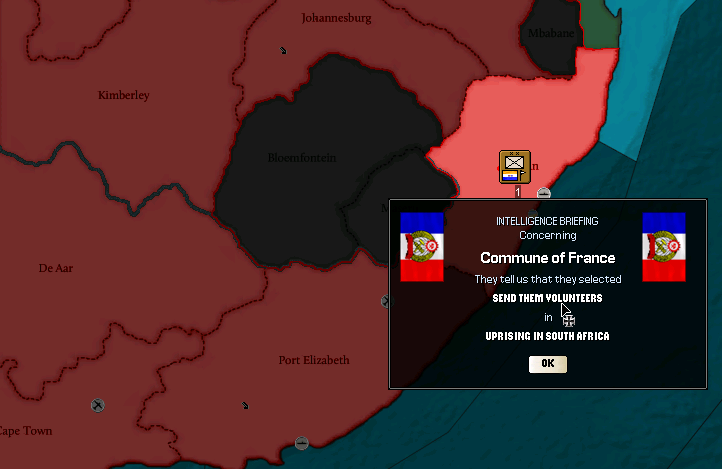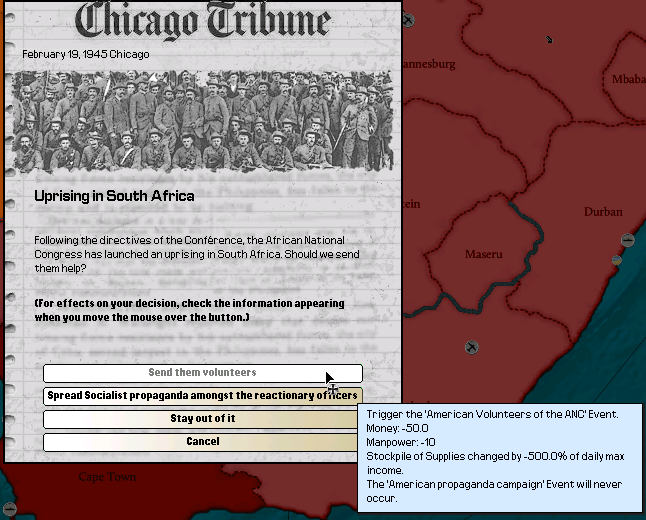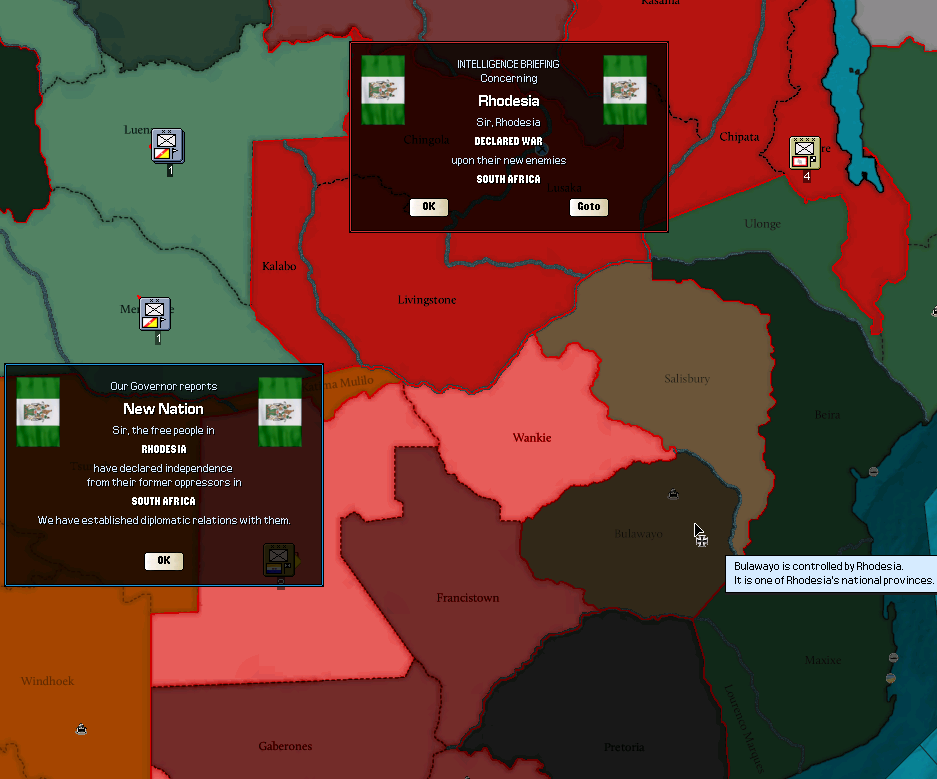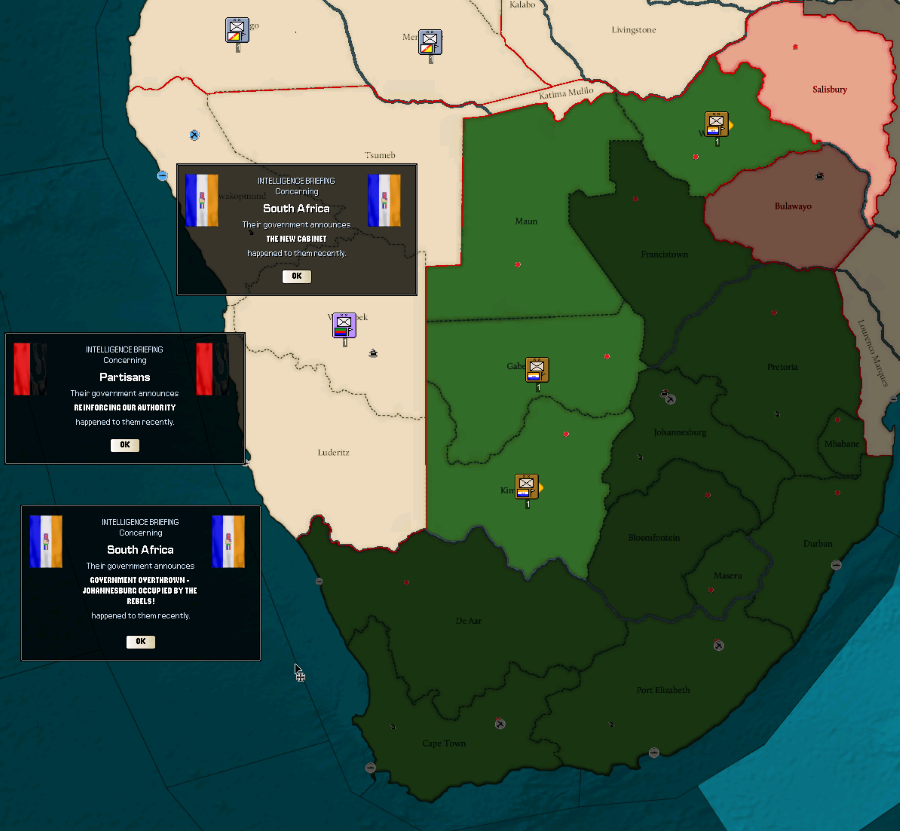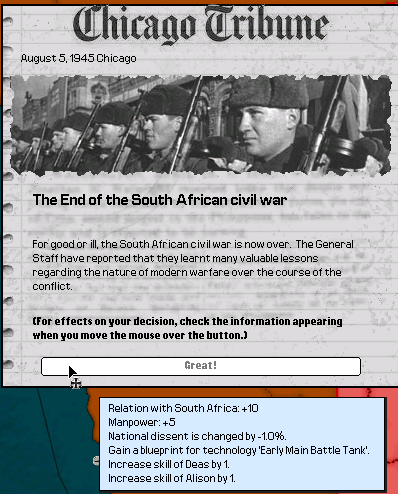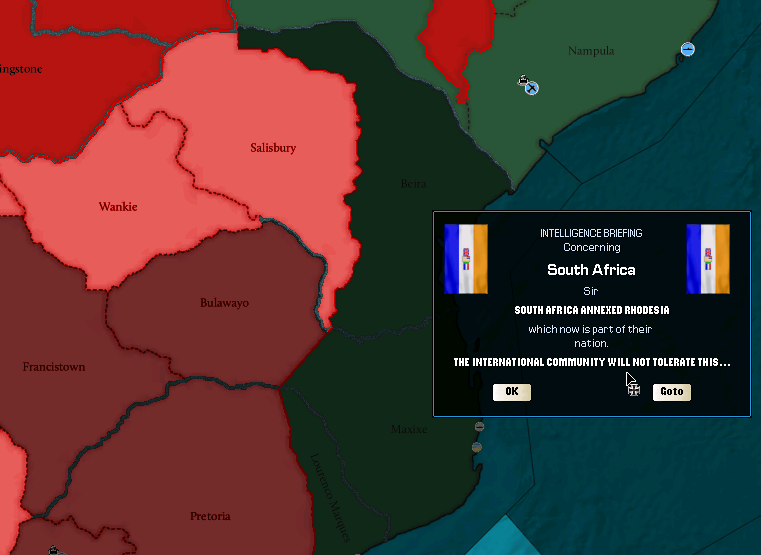Chief Savage Man
Active member
Chapter Twenty One: Mission Accomplished (Middle East: August-October 1943)
Newsreel produced by Los Angeles Bureau of Filmmakers using footage provided by the American Red Army. Released to public September 4, 1943.

RED ARMY RACES THROUGH TRANSJORDAN

Trucks with smiling and confident soldiers hanging on drive down a desert road.
It’s only been a few weeks since over three hundred thousand Turks surrendered in the Sinai, and now the whole of the Ottoman colonies in the Middle East are ripe for liberation!

Twin engine bombers fly over a coastal city and drop bombs.
A few Turks escaped the brilliant amphibious assault carried out by our soldiers a month ago, but our fliers won’t let them go that easily.


A column of surrendered Ottoman soldiers walk down a street with Quebecois soldiers standing guard.
These ones here tried to make it back north, but before they even knew what was happening their escape route was cut off by the rapid advance of General Law, which made it easy for the boys from Quebec to take them out of the equation.

Columns of soldiers, including a few tanks, probably Canadian, move down the road.
Half a million North American and Egyptian soldiers follow in Law’s footsteps, or tread marks we ought to say, ready to bring liberty to lands occupied by the Turks for centuries. General Law is already hundreds of miles further inland, with Baghdad in his sights.


A map appears showing a large arrow sweeping from Jerusalem all the way to Baghdad. Much smaller symbols with the Ottoman star and crescent represent the opposing forces.
There’s still a few Turks to deal with, but the Sultan hasn’t a prayer now!

It’s smooth sailing all the way to the Bosphorus from here on out!
------------------------------------------------
From an editorial in the October 24, 1956 edition of the Chicago Proletarian.
An Appeal for Calm and Clear Memory
There has been a great deal of panic and discontent across America over the last few months, and much of it is understandable. 1956 has been a poor year for the syndicalist mainstream, at least in terms of prestige and image. The twentieth Revolution Day, approaching in just a few weeks, looks like it will be a much more muted affair than the tenth was, when a triumphant America celebrated total victory over the Prague Pact. The many buildings and monuments dedicated that year are just now showing signs of age, the shine and luster of the many plaques and statues bearing the date November 11, 1946 somewhat dulled.
The last ten years of Franco-American dominance, nicknamed the Biarchy by Delegate Rustin in a recent Chamber speech, have been kind to the general welfare of the Syndintern. The data does not lie: the Marshall Plan has been a resounding success, erasing the scars of revolution and war in North America and Europe, and upgrading and expanding colonial-era infrastructure in Africa and syndicalist Asia. The condition of the average human in the free world is improving dramatically as you read this. Lost in all of the pessimist news recently was the announcement of campaigns to eradicate polio and smallpox by 1960. Much of the discussion chooses to focus on all the nations that will likely refuse to allow Syndintern health personnel in their borders, thus making eradication “impossible in the current political climate”, according to a quite pessimistic statement put out by the eternally dour Delegate Foster.
Such are the kinds of perspectives one finds in this current atmosphere. Despite the unprecedented pace of progress, America is beset by a sense that we are losing ground in a political sense, that the achievements of other non-socialist states signal that we are no longer as great as we were during the triumphal times of 1946. Combine this contrast with the constant controversy over almost every foreign situation the so-called Biarchy has involved itself in since then, and it is easy to understand where the malaise comes from.
Nobody is obligated to feel positively about the current state of affairs, indeed we all have a right to think the way we want. However, there is a troubling trend where recent events are being blamed on the decisions and actions of the Syndintern during the war in such a way where it should have been obvious to the decision makers that things would go wrong. This is simply wrong and irrational.
Consider Iraq, for instance, one of the nations Comrade Makhno referred to as a “people’s march” on the periphery of the free world, a group that also includes the Bhartiya Commune and Bolivia. Iraq has been beset by problems lately, so much so that they advised the International Council of Sport that an alternate may be required for the 1960 Spartakiade, currently scheduled to take place in Baghdad. So bad does the situation seem that the Iraqi Trade Union Congress doesn’t seem confident it can keep an event in its capital safe four years from now. This is not a country that sees itself going through a temporary crisis, but rather one that sees itself up against a long term threat.
There are many reasons why Iraq is in the situation it is now, many of them can be attributed to America. It is a complex discussion, and one with the time and willingness to learn can avail themselves of many fine positions on the matter at the international newspaper section of their local library. What we shall concern ourselves with are the overly simplistic and oft repeated claims that all of Iraq’s problems would be avoided if America had only done one thing differently, usually something similar to what the aspiring historian wishes to be done now.
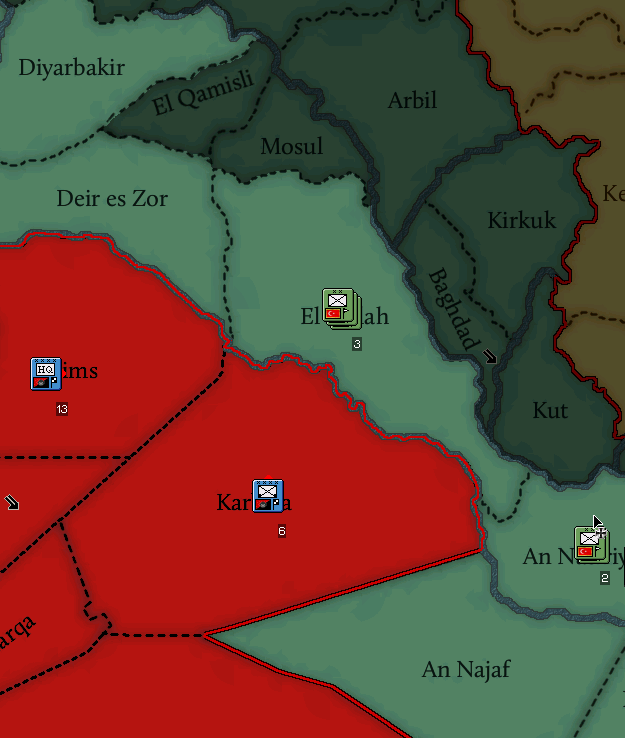
Some would have you believe that the invasion of Iraq was a rushed and chaotic mess, to be blamed on glory whoring commanders eager to see their names in the headlines of this and other newspapers back home.
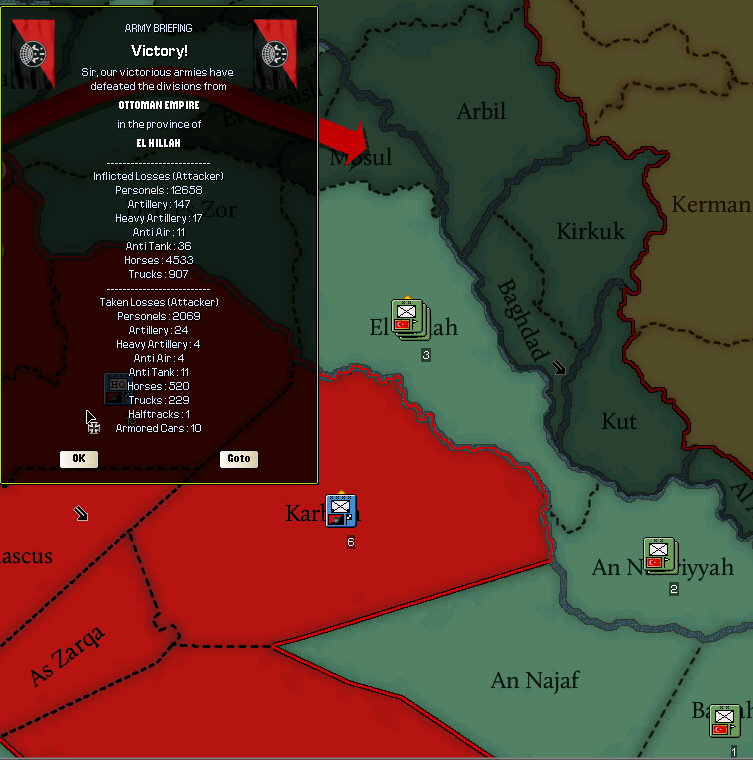
In fact, there’s nothing about the operation that would distinguish it from any other of the “clean-up” operations of the war. The goal of the operation was to chase down and eliminate the threat posed by what was left of the Ottoman Army, just like the goal of Operation Rocky was to eliminate the threat posed by the Italian Army, so on and so forth.
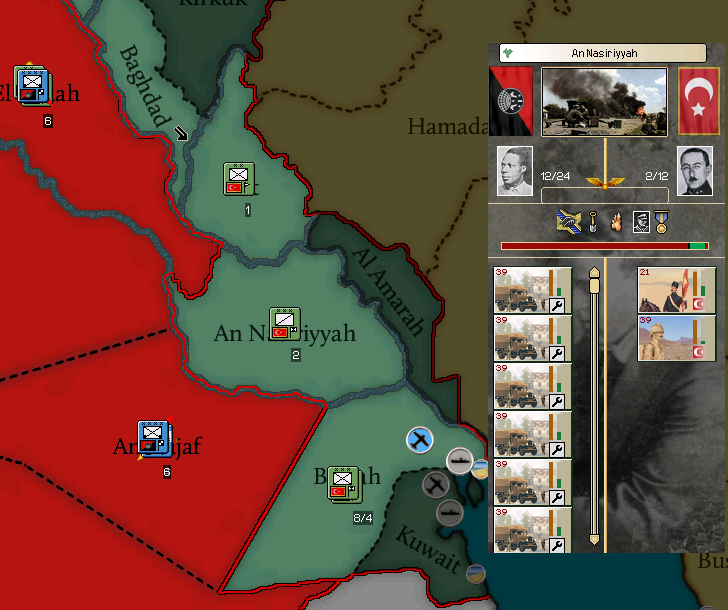
A delegate who will remain unnamed in this editorial, as naming them would serve to advance their seemingly bottomless need for attention, made the ludicrous statement during a hearing last week that being involved in the invasion of Iraq should disqualify Oliver Law from being Supreme Commander. This condition would also disqualify George Marshall.
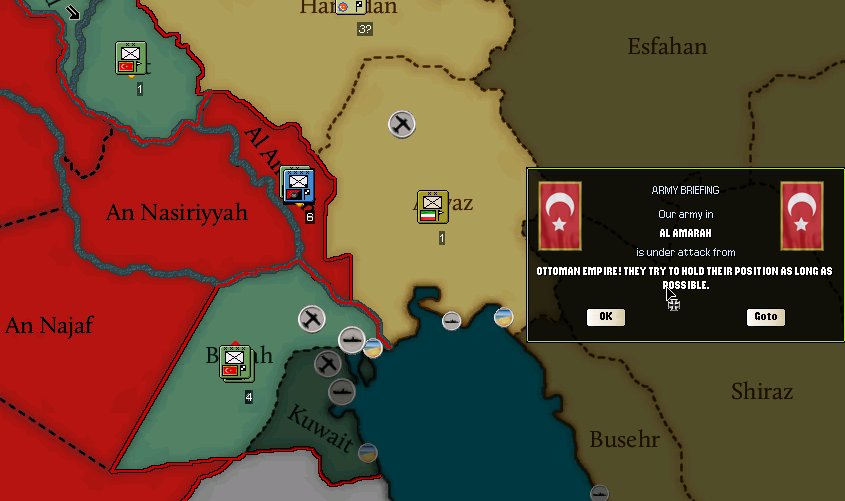
The decisions made in Iraq were meant to hasten the end of the Middle Eastern Front, plain and simple. Considerations about the post war position of the Muslim Brotherhood or Turkestan were far behind the most pressing issue on every Syndintern planner’s mind: saving the Commune from German breakthrough. The forces rampaging across the Middle East were needed to assault the core of the Prague Pact from every direction.
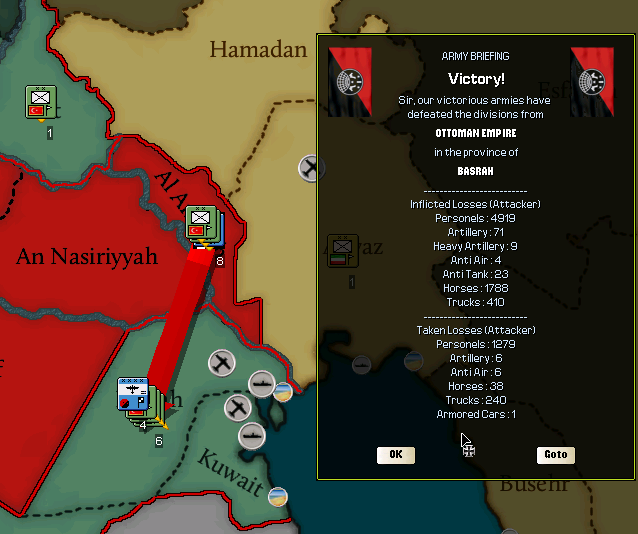
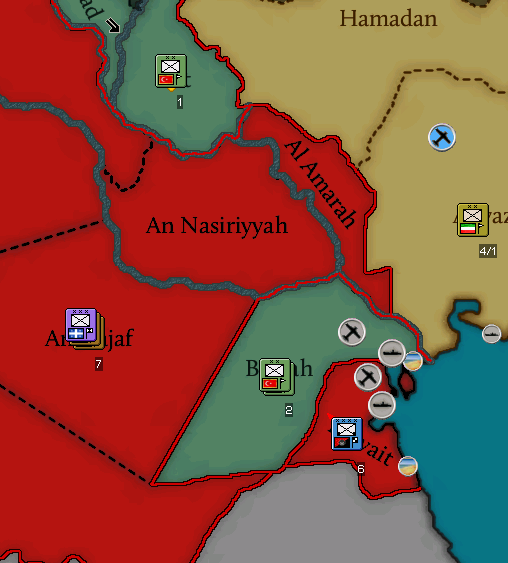
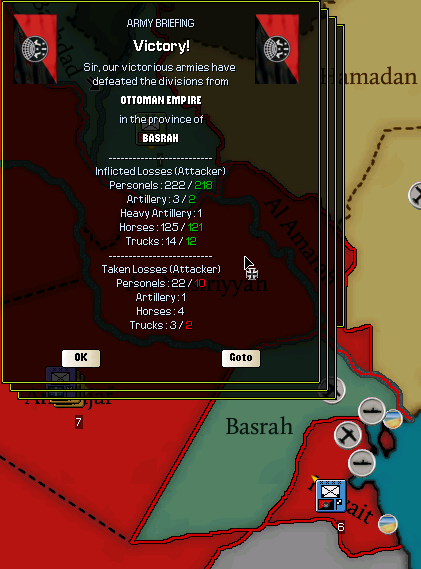
The American Red Army, including this paper’s endorsee for Supreme Commander, worked towards that end admirably, utilizing their superior mobility to put away the obsolete and broken down Ottoman forces.
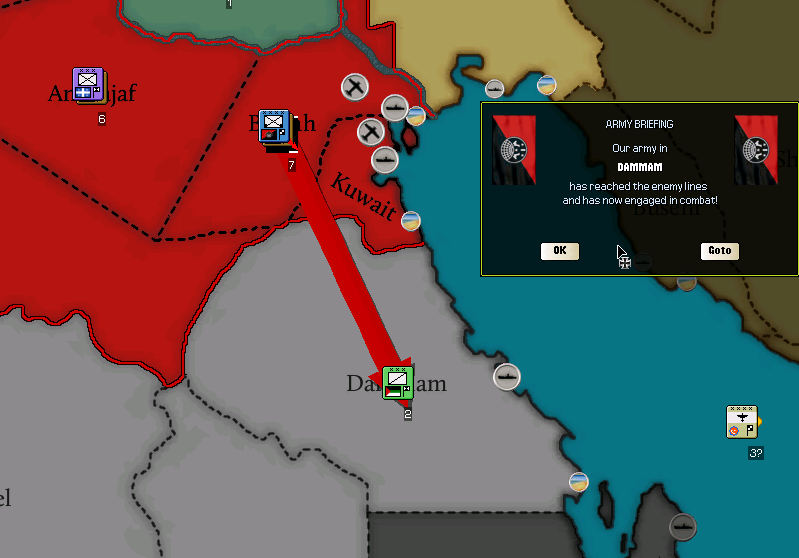
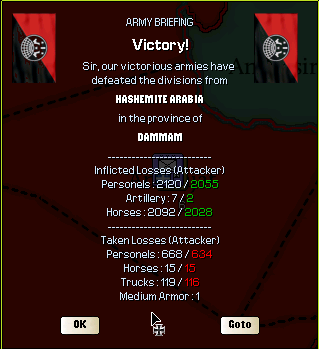
Once that was done, they moved on to put away the Hashemite forces to the south, an enemy made in the course of the strategic masterstroke that sealed the Mediterranean, and the Prague Pact with it. This is another aspect of the war that modern commentators love to blame the ills of the Middle East on. Not many of them have much of an alternative in mind other than making an opposed landing from over a thousand miles away. There are many other examples of this kind of hindsight being presented as obvious. It is disrespectful not only to the men and women who made those decisions but also the people across the world who need the Biarchy to provide solutions, rather than wallow in self doubt.
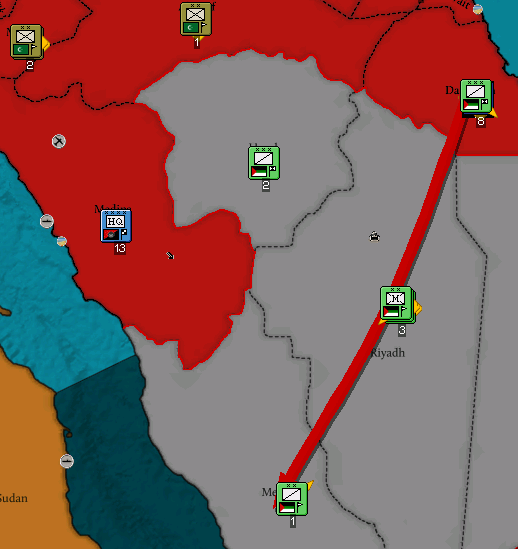
This is not to say that there are no valid criticisms of wartime conduct. The total suppression of the Arab nationalist establishment in Cairo turned a potential partner into an enemy, and the ignorant behavior of American commanders operating in the vicinity of Moslem holy sites provides justification to this day for the Turkic claim that the Central Asian theocracy is the only world power that has the right to govern Moslems.


There was fighting for Arabia, of course, but none of it was interesting and I don’t know where the right screenshots are if I even took them. Some Hashemites got in the way, they were thrown out, America wins.
Nevertheless, the assignment of blame should be left to the historians, not our delegates. Historians, particularly of war, understand better than anybody that innocent people are caught up in the progression of events larger than them. In what was the largest war of all time, innocent countries were caught up in events larger than them. A leader in wartime operates in a different ethical environment than one in peacetime, particularly if that war goes beyond the imperial ambitions of states into a clash of intractably opposed ways of economic and societal organization. Anybody who does not recognize that is either being ignorant or disingenuous.
Somebody ought to remind some of our delegates that they are not congressmen. Be wary of these political creatures that honor their predecessors one day and then denigrate them the next in order to promote themselves. As a worker and citizen, it is your responsibility to always know who your delegate is and what they are up to. If your delegate is one of these despicable climbers, then consider speaking with your coworkers and organizing a recall vote. If your delegate is willing to spit on distinguished comrades like Comrade Law or Comrade Marshall to get ahead, then they are more than willing to spit on you if it behooves them. If syndicalism in America is to operate for the benefit of the workers as it has so far, then these politicians must be expelled from the Chamber and replaced with servants of the people.
Newsreel produced by Los Angeles Bureau of Filmmakers using footage provided by the American Red Army. Released to public September 4, 1943.

RED ARMY RACES THROUGH TRANSJORDAN

Trucks with smiling and confident soldiers hanging on drive down a desert road.
It’s only been a few weeks since over three hundred thousand Turks surrendered in the Sinai, and now the whole of the Ottoman colonies in the Middle East are ripe for liberation!

Twin engine bombers fly over a coastal city and drop bombs.
A few Turks escaped the brilliant amphibious assault carried out by our soldiers a month ago, but our fliers won’t let them go that easily.


A column of surrendered Ottoman soldiers walk down a street with Quebecois soldiers standing guard.
These ones here tried to make it back north, but before they even knew what was happening their escape route was cut off by the rapid advance of General Law, which made it easy for the boys from Quebec to take them out of the equation.

Columns of soldiers, including a few tanks, probably Canadian, move down the road.
Half a million North American and Egyptian soldiers follow in Law’s footsteps, or tread marks we ought to say, ready to bring liberty to lands occupied by the Turks for centuries. General Law is already hundreds of miles further inland, with Baghdad in his sights.


A map appears showing a large arrow sweeping from Jerusalem all the way to Baghdad. Much smaller symbols with the Ottoman star and crescent represent the opposing forces.
There’s still a few Turks to deal with, but the Sultan hasn’t a prayer now!

It’s smooth sailing all the way to the Bosphorus from here on out!
------------------------------------------------
From an editorial in the October 24, 1956 edition of the Chicago Proletarian.
An Appeal for Calm and Clear Memory
There has been a great deal of panic and discontent across America over the last few months, and much of it is understandable. 1956 has been a poor year for the syndicalist mainstream, at least in terms of prestige and image. The twentieth Revolution Day, approaching in just a few weeks, looks like it will be a much more muted affair than the tenth was, when a triumphant America celebrated total victory over the Prague Pact. The many buildings and monuments dedicated that year are just now showing signs of age, the shine and luster of the many plaques and statues bearing the date November 11, 1946 somewhat dulled.
The last ten years of Franco-American dominance, nicknamed the Biarchy by Delegate Rustin in a recent Chamber speech, have been kind to the general welfare of the Syndintern. The data does not lie: the Marshall Plan has been a resounding success, erasing the scars of revolution and war in North America and Europe, and upgrading and expanding colonial-era infrastructure in Africa and syndicalist Asia. The condition of the average human in the free world is improving dramatically as you read this. Lost in all of the pessimist news recently was the announcement of campaigns to eradicate polio and smallpox by 1960. Much of the discussion chooses to focus on all the nations that will likely refuse to allow Syndintern health personnel in their borders, thus making eradication “impossible in the current political climate”, according to a quite pessimistic statement put out by the eternally dour Delegate Foster.
Such are the kinds of perspectives one finds in this current atmosphere. Despite the unprecedented pace of progress, America is beset by a sense that we are losing ground in a political sense, that the achievements of other non-socialist states signal that we are no longer as great as we were during the triumphal times of 1946. Combine this contrast with the constant controversy over almost every foreign situation the so-called Biarchy has involved itself in since then, and it is easy to understand where the malaise comes from.
Nobody is obligated to feel positively about the current state of affairs, indeed we all have a right to think the way we want. However, there is a troubling trend where recent events are being blamed on the decisions and actions of the Syndintern during the war in such a way where it should have been obvious to the decision makers that things would go wrong. This is simply wrong and irrational.
Consider Iraq, for instance, one of the nations Comrade Makhno referred to as a “people’s march” on the periphery of the free world, a group that also includes the Bhartiya Commune and Bolivia. Iraq has been beset by problems lately, so much so that they advised the International Council of Sport that an alternate may be required for the 1960 Spartakiade, currently scheduled to take place in Baghdad. So bad does the situation seem that the Iraqi Trade Union Congress doesn’t seem confident it can keep an event in its capital safe four years from now. This is not a country that sees itself going through a temporary crisis, but rather one that sees itself up against a long term threat.
There are many reasons why Iraq is in the situation it is now, many of them can be attributed to America. It is a complex discussion, and one with the time and willingness to learn can avail themselves of many fine positions on the matter at the international newspaper section of their local library. What we shall concern ourselves with are the overly simplistic and oft repeated claims that all of Iraq’s problems would be avoided if America had only done one thing differently, usually something similar to what the aspiring historian wishes to be done now.

Some would have you believe that the invasion of Iraq was a rushed and chaotic mess, to be blamed on glory whoring commanders eager to see their names in the headlines of this and other newspapers back home.

In fact, there’s nothing about the operation that would distinguish it from any other of the “clean-up” operations of the war. The goal of the operation was to chase down and eliminate the threat posed by what was left of the Ottoman Army, just like the goal of Operation Rocky was to eliminate the threat posed by the Italian Army, so on and so forth.

A delegate who will remain unnamed in this editorial, as naming them would serve to advance their seemingly bottomless need for attention, made the ludicrous statement during a hearing last week that being involved in the invasion of Iraq should disqualify Oliver Law from being Supreme Commander. This condition would also disqualify George Marshall.

The decisions made in Iraq were meant to hasten the end of the Middle Eastern Front, plain and simple. Considerations about the post war position of the Muslim Brotherhood or Turkestan were far behind the most pressing issue on every Syndintern planner’s mind: saving the Commune from German breakthrough. The forces rampaging across the Middle East were needed to assault the core of the Prague Pact from every direction.



The American Red Army, including this paper’s endorsee for Supreme Commander, worked towards that end admirably, utilizing their superior mobility to put away the obsolete and broken down Ottoman forces.


Once that was done, they moved on to put away the Hashemite forces to the south, an enemy made in the course of the strategic masterstroke that sealed the Mediterranean, and the Prague Pact with it. This is another aspect of the war that modern commentators love to blame the ills of the Middle East on. Not many of them have much of an alternative in mind other than making an opposed landing from over a thousand miles away. There are many other examples of this kind of hindsight being presented as obvious. It is disrespectful not only to the men and women who made those decisions but also the people across the world who need the Biarchy to provide solutions, rather than wallow in self doubt.

This is not to say that there are no valid criticisms of wartime conduct. The total suppression of the Arab nationalist establishment in Cairo turned a potential partner into an enemy, and the ignorant behavior of American commanders operating in the vicinity of Moslem holy sites provides justification to this day for the Turkic claim that the Central Asian theocracy is the only world power that has the right to govern Moslems.


There was fighting for Arabia, of course, but none of it was interesting and I don’t know where the right screenshots are if I even took them. Some Hashemites got in the way, they were thrown out, America wins.
Nevertheless, the assignment of blame should be left to the historians, not our delegates. Historians, particularly of war, understand better than anybody that innocent people are caught up in the progression of events larger than them. In what was the largest war of all time, innocent countries were caught up in events larger than them. A leader in wartime operates in a different ethical environment than one in peacetime, particularly if that war goes beyond the imperial ambitions of states into a clash of intractably opposed ways of economic and societal organization. Anybody who does not recognize that is either being ignorant or disingenuous.
Somebody ought to remind some of our delegates that they are not congressmen. Be wary of these political creatures that honor their predecessors one day and then denigrate them the next in order to promote themselves. As a worker and citizen, it is your responsibility to always know who your delegate is and what they are up to. If your delegate is one of these despicable climbers, then consider speaking with your coworkers and organizing a recall vote. If your delegate is willing to spit on distinguished comrades like Comrade Law or Comrade Marshall to get ahead, then they are more than willing to spit on you if it behooves them. If syndicalism in America is to operate for the benefit of the workers as it has so far, then these politicians must be expelled from the Chamber and replaced with servants of the people.























































































